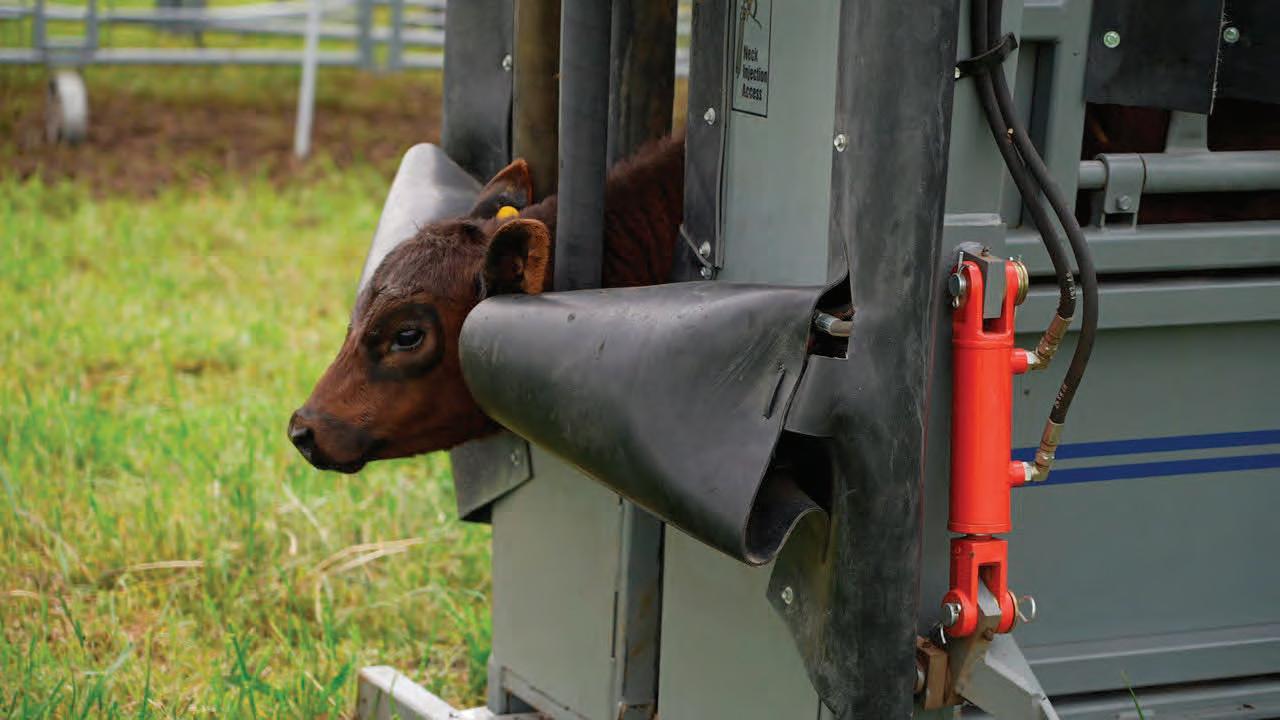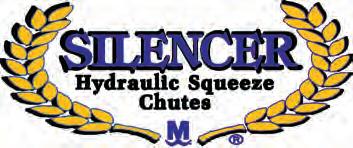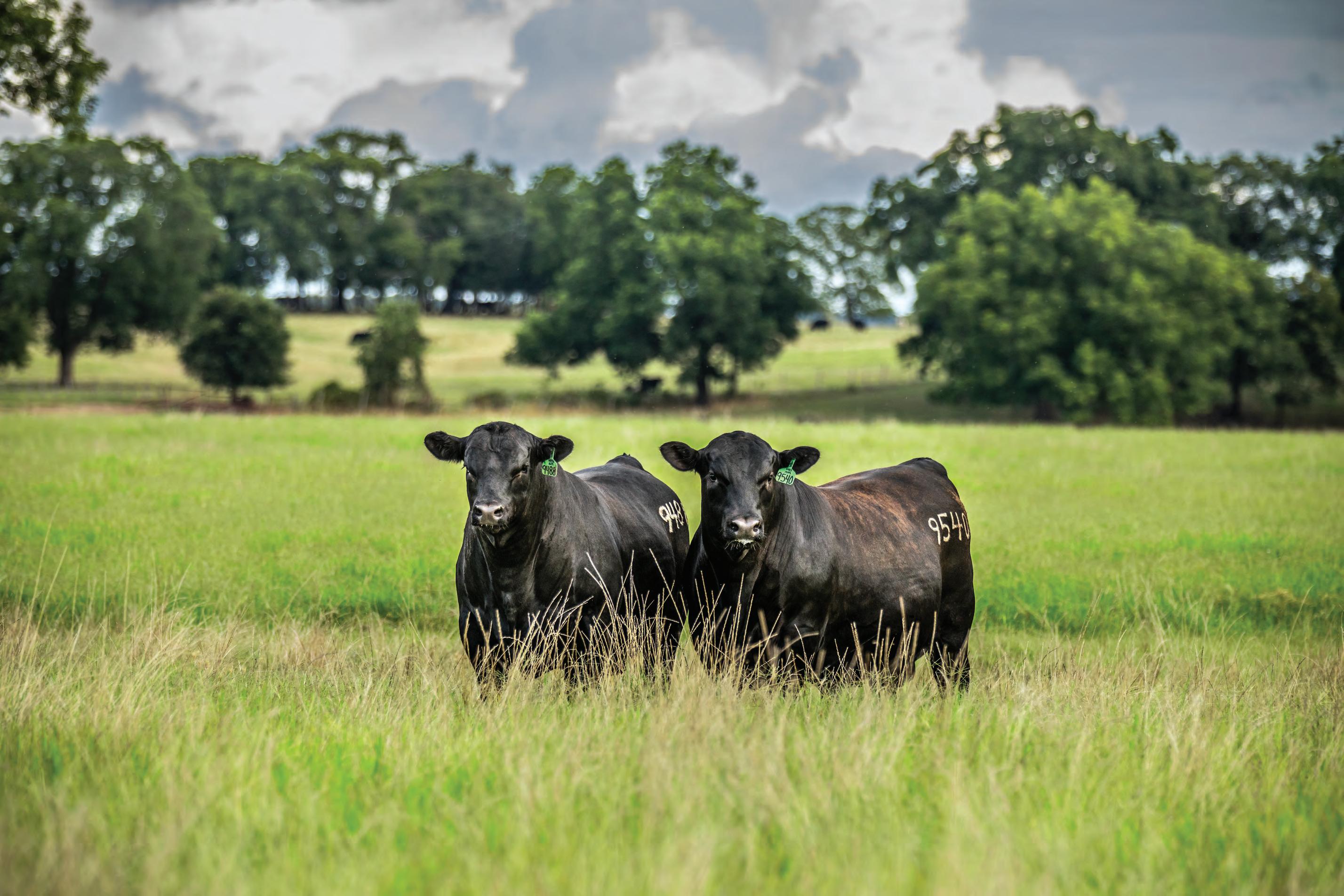At






















It is July, and that means fireworks, road trips and a full slate of ranch gatherings around the corner.
This year, Texas & Southwestern Cattle Raisers Association is excited to host 20 local events throughout the state. We will bring the latest on association happenings, provide a delicious beef meal and simply enjoy the company of fellow cattle raisers. Ranch gatherings are free to attend and are the perfect introduction to Texas & Southwestern Cattle Raisers Association — so grab a friend!
Often, folks might see our association as an organization strictly for those who own cattle, but our mission encompasses so much more.
Our association provides value to anyone with a vested interest in working lands and the future of the cattle industry. That means feedstore owners, ranch realtors and community bankers who, like ranchers, want to see the industry thrive.
This network includes the likes of Athens Commission Co. and Emory Livestock Auction, local auction markets
serving cattle raisers in East Texas. Read about the Forester family’s rich history in livestock marketing starting on page 10.
Also this month, we explore how the industry has evolved over the past three decades thanks to producerfunded research, education and promotion.
And this is just the beginning. We hope you enjoy spending time with this issue of The Cattleman magazine. Soak up these summer months, and save the date for an association ranch gathering near you! T C
Jaclyn Roberts Parrish Executive Director of Communications & Marketing/ Editor-in-Chief, The Cattleman
Owning land you can hunt or fish on is a goal for many. Being able to eventually live on it would be a dream. Well, get ready to pinch yourself because it’s possible. With a Capital Farm Credit recreational land loan, you can enjoy everything your land offers. And then when you find the perfect spot for a cabin or forever home, start building. We’re here for you to help you make your land your own with our knowledge, guidance and expertise in acquiring recreational land and loans that have competitive terms and rates. So get to it, we can’t wait to see what you can dream of. To learn more, visit CapitalFarmCredit.com.
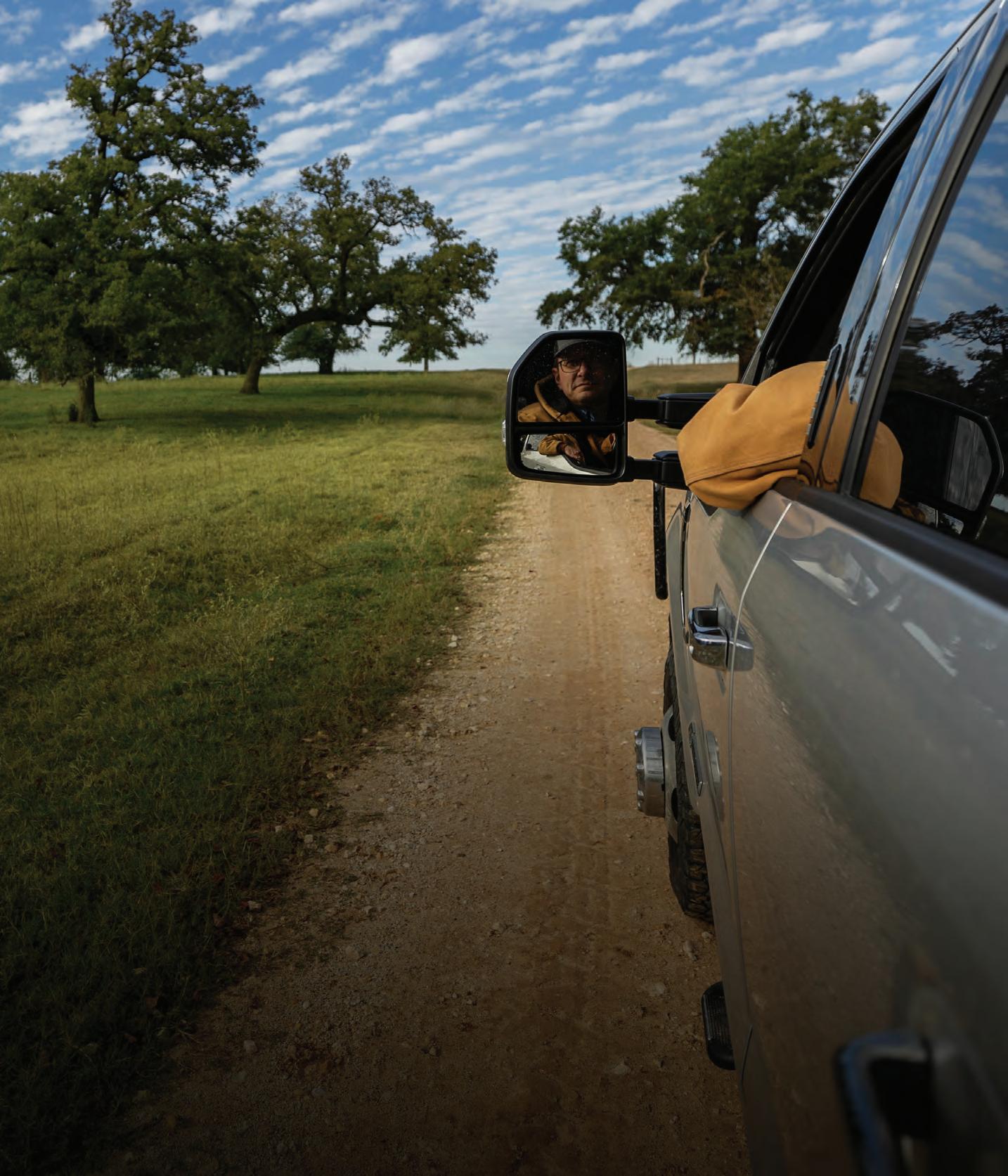
Published by Texas & Southwestern Cattle Raisers Association
P.O. Box 101988
Fort Worth, Texas 76185
Phone: 817-332-7064
Fax: 817-394-1864
Subscription Inquiries: (orders, address change, problems) tscra@tscra.org or 800-242-7820
tscra.org
EDITORIAL
Jaclyn Roberts Parrish Executive Director, Communications & Marketing/Editor-in-Chief jaclyn@tscra.org • 817-916-1794
Jena McRell Managing Editor
Kayla Jennings Proofreader
ADVERTISING
Jana Earp Advertising & Partnership Manager jearp@tscra.org
• 817-916-1744
PRODUCTION
Heather Heater Graphic Design & Print Production Manager
Bart Ashford Creative Director
Production support by GRANT COMPANY grantcompany.net
IMPORTANT LINKS
The Cattleman/ TSCRA tscra.org

Cattle Raisers Insurance cattleraisersinsurance.com
Law Enforcement tscra.org, click on Theft & Law
Cattle Raisers Convention cattleraisersconvention.com
Looking ahead. In this issue, explore how solid partnerships, from local livestock auctions to nationwide organizations, ensure a strong beef industry for generations to come.
Photo by Russell Graves
 Story and photos by Mike Barnett
Story and photos by Mike Barnett
Honesty. Integrity. Look a person in the eye when making a deal. Seal it with a handshake.
Do what you commit to — every time. And make sure that check you are writing is always good.
That is how Don Forester and his brother, Peewee, conducted business at their livestock commission companies for more than half a century.
It is those proud values, which are now carried on by three generations of the Forester family, that led to the continued success of Athens Commission Co. and Emory Livestock Auction — and greatly supported the cattle business in East Texas along the way.
“They stick with what they tell you,” says Dean Campbell, of Chandler, who has purchased and sold cattle at the Athens auction since the brothers acquired it 50 years ago. “They tell you anything, you can take it to the bank.”
Don, 83, still works the Emory auction market on Tuesdays and Saturdays, and Athens on Fridays, but is slowly transitioning to a less active role.
His lifelong business partner and brother, Peewee, died in 2011. Today, their children and grandchildren — indoctrinated with the values of the past — are making their own mark in the cattle business of the future.
Sale
Don and Peewee, the sons of John Robert Forester, helped their dad scratch a living out of the family truck farm, growing potatoes and watermelons to sell in Dallas.
As teenagers, the brothers were fascinated with cattle and stumbled their way into the auction business.
Their high school agriculture teacher, Mr. Westbrook, owned part-interest in an auction market in Tyler. Westbrook, tired of the partnership, gave the brothers his interest around 1958.

“When I was in school, I wasn’t studying nothing else,” Don says. “I was just studying cattle.”
The brothers learned quickly about the challenges associated with running a business. The Tyler venture eventually failed, and they started trading cattle and

worked for Reagan Jenkins at the Athens Commission Co. When an auction market came up for sale across town, the Forester brothers took the plunge.
“They bought it, and Reagan said they would never run as many cattle as he did,” says Peewee’s oldest son Brad. “About a year-and-a-half later, they bought him out.”
That was in 1972. Roughly 14 years later, the auction market in Emory came up for sale. A group of local businessmen approached the Forester brothers to see if they were interested in the sale barn roughly 50 miles north of their Athens Commission Co. location. They bit.
“Our mother didn’t want to do it,” Brad remembers of the risky business decision. “But then, it has turned into one of the best investments they ever made.”
days at Emory and Athens bring out local ranchers and order buyers, but the rhythm of the auction cycle depends on the season — and the weather. Drought has been the biggest challenge for the Foresters and their customers for the last 50 years.They stick with what they tell you. you can take it to the bank.”
— Dean Campbell, Chandler
It’s 9 a.m. Friday morning, sale day at Athens Livestock Commission. The front office is quiet before the auction begins at 11 a.m., sharp.

Back in the pens, the action is hot and heavy.
Cows bellow and calves bawl in a noisy chorus as pickups form a line with their trailers, snaking back toward Highway 31.

Gates clatter and clang in harmony with the screech of metal, as deadbolts are forced to open rusty trailer doors — releasing cattle to be moved throughout the sprawling facility.
Orders are given as workers sort, record and perform all the necessary duties to run cattle through the sale ring.


Bryan Forester calls it organized chaos, but it is all part of a well-oiled machine making the Athens and Emory markets two of the most efficient in the business.
“They get the cattle in. They get the cattle out. When you go to load, they get you loaded,” says John Hyde, an order buyer and Texas & Southwestern Cattle Raisers Association member who has bought cattle from both auctions for many years. “It’s a smooth operation. They know what they’re doing.”
That efficiency is a tribute to three generations of Foresters who have made sale barns their lives.
Don, the surviving brother, is the family patriarch. Also included are his children, Bubba and Kim Haupt; and Kim’s daughter, Amanda Butler. Peewee’s sons, Brad and Bryan, are vital to the business; as are Brad’s daughter, Paige Morrison, and Bryan’s son, Kyle.
Bubba says he, Kim, Brad and Bryan were pretty much raised together working in the auction markets.
“When we were seven, eight years old, they’d get us out of school on Friday when they didn’t have enough help,” Bubba says.
Kim learned her front-office skills at the hand of a lady who was Don and Peewee’s bookkeeper from 1976 until she died in 2011.
“Her name was Mildred Turner, and she was really their boss,” Kim says with a chuckle. “She was the glue that held them together.”
Teamwork is at the heart of the Forester family’s success. Each can do any job required.
The familiarity of working with someone all their lives may not be easy at times, but it has its advantages.
“Me and Bryan have been working cattle since we were 12,” Bubba says. “I know exactly
what he’s going to do, and he knows exactly what I’m going to do.”
That familiarity also extends to the Forester employees.
Most are housed on the Forester ranches and work fulltime, splitting between auction duties and ranch work. Some have worked for the Foresters up to 50 years, and in many cases, their own families continue the tradition.

This gives the Foresters an experienced and stable sale barn crew, which allows Judd Murray, an auctioneer who
has worked for the Foresters 16 years, to move through cattle — and fast.
“This barn runs like clockwork,” says Brandy Baughman, Texas & Southwestern Cattle Raisers Association market inspector. “Here at Athens and Emory, Judd sells about 250 an hour.”


A second auctioneer, Jack Robinson, is like a second grandpa to three generations of Foresters, Amanda says: “We can always call on his expertise. He wears many hats around here.”

With an average herd size of roughly 45 head, small ranchers are the backbone of the Texas cattle business — and it’s no different at Emory Livestock Auction and Athens Livestock Commission. Those seated in the crowd reflect the changing demographic and dynamic in parts of rural East Texas and across the state.
According to data from the Texas A&M Natural Resources Institute, the Rains County population has grown 65% since 1997. Land values have skyrocketed nearly 360%. Nearby Henderson County has experienced 22% population growth and more than 290% increase in land values.
Statewide, Texas has lost more than 2.1 million acres of working lands since 1997.
As old-timers pass on and their children move to town, ranches are split up and weekenders fleeing Dallas and Fort Worth wanting their own little piece of Texas move in. These landowners may have little background in agriculture, opting sometimes for a small herd of 20 or 30 cows, or, as evidenced by the Emory auction, exploring a variety of more exotic ventures on their small acreage.
Saturdays at Emory are a true melting pot in this new era, and sometimes, literally a zoo.
Goats are a big draw, as are llamas and alpacas, and a kangaroo or two has been known to hop through the ring. Livestock and exotic animals have been transported in everything from a convertible Corvette Stingray to a school bus.
Kyle acknowledges the important role livestock markets play in the East Texas cattle business. A wave of new marketing tools may have gained a foothold, but the local sale barn will always be the “first option — and a lot of times the best option” for smaller ranchers to convert cattle into cash, he says.
“There’s always going to be the need for people that need to sell four, five or six calves or something instead of full load lots,” Brad adds.
Not every rancher has the time, patience or know-how to track the ups and downs of the market each day, Kyle points out.
“So, if you’re not in tune with that, your best bet may be to put them here,” Kyle says. “When you have hundreds of orders that are competing for your cattle, you’re more likely to get their true worth here than you are anywhere else.”
“Every day, Texas gains 1,300 new residents and loses 640 acres of farmland,” says Emily Lochner, Texas & Southwestern Cattle Raisers Association executive director of engagement and education. “As land tracts become smaller segments, the new landowner and rancher is seeking a place to belong.
“Texas & Southwestern Cattle Raisers Association has long been a leader for education among the beef industry. We continue to serve that longstanding need, while adapting our content and resources for our growing audiences.”
Texas & Southwestern Cattle Raisers Association’s educational
arm, the School for Successful Ranching, has seen success for decades at the Cattle Raisers Convention & Expo — showcasing 30-plus hours of on-site education, but growth is on the horizon.
“The industry landscape has changed,” Lochner says. “We can’t only host 30-minute educational clinics in Fort Worth. We have to meet the needs of the rural Texan and the new Texan where they are.”
Thanks to technology, education is a click away. Today, Texas & Southwestern Cattle Raisers Association provides online education each month through its virtual classroom, Ranching 101. And the association
is expanding its educational reach this summer.
A new podcast on best beef industry practices is set to launch the first of August, expanding the School for Successful Ranching brand.
“New landowners and optimistic ranchers are seeking information they don’t know. School’s in session, and Texas & Southwestern Cattle Raisers Association just rang the bell,” Lochner says.
“Folks can learn to market their cattle, and what to expect at auction barns just like Emory and Athens.”
Learn more at tscra.org.
We didn’t just design the 6M Tractors with you in mind. We designed them with you by our side.

Before we even hit the drawing board, we talked with farmers, fleet owners and more to learn what they need in a mid-size utility tractor. Visit JohnDeere.com/6M or JohnDeere.ca/6M or contact your John Deere dealer to discover the tractor you designed—with more visibility, better maneuverability and more options to fit your needs.
The 6M. Reimagined by you. For you.
Don Forester’s children, Bubba and Kim, have been in the family business all of their lives, as have Peewee’s sons, Brad and Bryan.

Bryan’s son, Kyle, graduated from Texas A&M with a degree in agriculture, worked a short time for Bovine Elite, then came back to the family business. Brad’s daughter, Paige Morrison, also went to college but came back to the auction. Kim’s daughter, Amanda Butler, studied architecture. She also came back to the auction business. Brad said they all have side interests, but the Emory and Athens auctions will always be their “bread and butter.”



The draw of the auction is strong for the Forester clan.
One thing that sets the Foresters apart is their willingness to go the extra mile for their customers. The Emory and Athens facilities are manned six to seven days a week.
“There’s always someone available to come help you load, unload, get your check, do whatever needs to be done,” Amanda says.
They’ve also developed a reputation for serving their customers. This may take the form of helping them work their cattle, to penning them with the help of Bryan’s dogs, to hauling cattle to the sales.


“When you deal with us, 90 to 95% of the time you’re dealing the family,” Bryan says. “You don’t have to deal with someone you don’t know. We’re hands-on with most everything we do.”
As they adapt to new challenges facing the Texas cattle industry, it is the old-time values the Foresters hold near and dear.

You have to have good business sense, says patriarch Don. Equally important is recognizing the role of a family business and the importance of working together.
“We always have each other’s backs,” Kim says.
Something auctioneer Judd Murray said Don and Peewee taught him was to put the customer first, because they pay the bills through their commissions.

“Don and Peewee always strived on getting the most money for the seller that they could get,” Murray recalls. “It didn’t matter if it was a $10 baby calf or a $2,000 cow. And if they could get somebody to give more than they’re supposed to, that’s what they aim to do.”
Don’t forget integrity and the value of hard work.
“My dad and Don, they didn’t like it when you failed,” Bryan says. “You had a job, and it didn’t make a difference if it was farming or working cattle — whatever it was. It was instilled in us that you did it, and you did it with pride.”
Add a healthy dose of honesty and the Foresters’ future is ensured.
“We have our daddies and grandfathers and our great grandparents’ legacy,” Kim says. “If you treat someone right, they’re going to be there for you.” T C
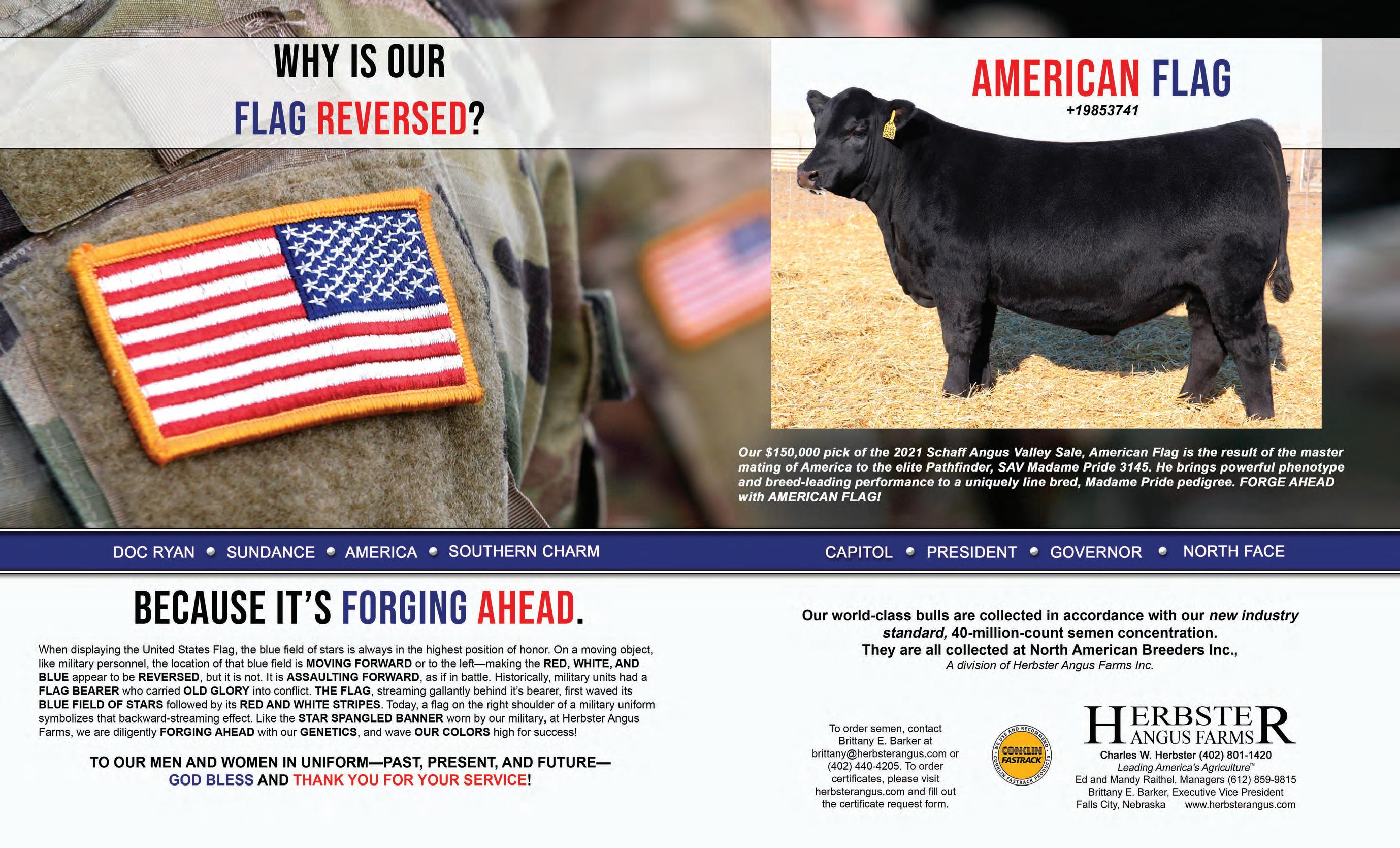

Mike Jarzombek was 18 years old when he first reported to work in H-E-B’s meat department. Growing up on his family’s ranch near Poth, he understood the commitment and care required when raising cattle.
On that day in the late 1980s, his career-long education in retail beef merchandising was about to begin.
It was also a time when the U.S. beef industry stood at a crossroads. Ranchers struggled to squeeze profits out of tight margins, while consumers were cautioned against red meat consumption and questioned beef’s nutritional value. Demand waned. Prices suffered. And the future looked bleak.
In light of this uncertainty, cattle raisers across the Southwest and nation did what they are known to do — got to work. They spoke up, asked hard questions, and invested in research to fully understand the pitfalls and opportunities the industry faced.
When the 1985 Farm Bill authorized the national, dollar-perhead Beef Checkoff, it spurred research concepts into action. Because of these efforts, today’s cattle business paints an entirely different picture than it did three decades ago.


“The work you all have done with genetics and everything that you are doing [to improve quality] has helped immensely,” said Jarzombek, who is now senior vice president of sales and merchandising for H-E-B’s northwest division in Dallas. “It has helped us as retailers continue selling beef.”
Along with four other industry experts, Jarzombek took the stage March 24 during the opening session of the 2023 Cattle Raisers Convention & Expo in Fort Worth. Texas Beef Council Executive Vice President Molly McAdams moderated the hour-long discussion titled, “Sparks that Accelerated Beef Demand.”
Aptly named, expert panel reflected on several sparks that ignited a brighter future for the beef community.

 Photo by Emily McCartney
Photo by Emily McCartney
A registered dietitian and nutrition scientist, Shalene McNeill admitted nutrition is an evolutionary science. She earned her doctorate in human nutrition from Texas A&M University in 1997; and has spent more than 15 years as executive director of nutrition science, health and wellness for National Cattlemen’s Beef Association.
For many years, the beef industry was playing defense and reacting to dietary concerns about fat, carbohydrates and cholesterol.
In the ‘90s, the focus was positioning lean beef as part of a healthy diet. The 1980 Dietary Guidelines for Americans, and subsequent federal recommendations that followed in later years, resulted in more consumers questioning the nutritional merits of the food they were consuming. And red meat did not fare well.
A physician and rancher from Texas was among the first to raise a hand and offer a different perspective.
Within his practice, Dr. Dick Sherron, of Beaumont, reported seeing cases of frailty and muscle loss among aging populations.
The Texas & Southwestern Cattle Raisers Association past president and Texas Beef Council director, at the time, led the Beef Checkoff’s nutrition research committee and suggested lessening the focus on fat and elevating the positives in beef, namely protein.


“That really changed the whole conversation that we are having about beef and health today,” McNeill said.
Research validated beef’s beneficial role in a healthy diet as an excellent source of protein and 10 essential nutrients including B-vitamins, zinc and iron.
Protein’s power spread quickly. New products lined grocery store shelves and touted high protein levels, but McNeill said none provided the same level of protein and nutrients as efficiently as beef.
“Protein changed everything, because now we’re on the offense and talking about why you need beef protein,” she said. “And it’s also the important nutrients like iron and zinc.”
Consumers today have given beef a vote of confidence, too. A recent report from the Checkoff-funded Consumer Beef Tracker showed consumers ranked beef over chicken as a nutritious food (see Figure 1).
“Beef is one ingredient with 24 grams of protein and 150 calories,” McNeill said. “It can’t be replicated because you have not only the nutrition, but also the taste. And all of a sudden now, we’re looked at as a driver of beef demand.”
 FIGURE 1 CONSUMERS RANK BEEF OVER CHICKEN AS A NUTRITIOUS FOOD
Top: Mike Jarzombek, of H-E-B, tells cattle raisers how improvements at the ranch level have boosted retail sales.
FIGURE 1 CONSUMERS RANK BEEF OVER CHICKEN AS A NUTRITIOUS FOOD
Top: Mike Jarzombek, of H-E-B, tells cattle raisers how improvements at the ranch level have boosted retail sales.
In the late ‘80s and early ‘90s, beef quality was also called into question.
The industry’s first National Beef Tenderness survey reported that one out of every four steaks was deemed unacceptably tough by consumers.
Discussion panelist Mandy Carr Johnson, senior executive director of scientific affairs at National Cattlemen’s Beef Association, said when producer leadership saw this data, they knew it was a critical moment to act.
“We had to start working to address this challenge,” said Johnson, who holds a doctorate in meat science from Texas Tech University. “Key research studies were initiated like the beef genome project that looked at key markers utilized to predict things like marbling and other tenderness qualities.”
Once available, producers responded by incorporating the information into selection decisions and management on the ranch. Research also revealed ways to improve tenderness at the wholesale level. Slow and steady progress translated into real results (see Figure 2).

“Gradually, the number of steaks that consumers considered tough and unacceptable started going down,” Johnson said. “And it really gave us the opportunity to provide better products for our partners down the supply chain.”

Another fundamental driver in beef research is the National Beef Quality Audit, a survey conducted every five years that measures opportunities and progress.
In 1991, the audit reported a high incidence rate of injection site lesions — a major concern for product quality, especially in high-value cuts.
“Back then, we saw it a lot, particularly in the sirloin,” Jarzombek said. “All of that product was downgraded or just lost. In the retail business, yield loss is significant.”
Through Beef Quality Assurance programs offered in partnership with Texas & Southwestern Cattle Raisers Association, Texas Cattle Feeders Association, Texas A&M AgriLife Extension and Texas Beef Council, producers gained the necessary know-how to improve these practices. And it worked.
Jarzombek said instances are now few and far between, and they rarely see lesions in the sirloin anymore.
Dan Halstrom, president and CEO of U.S. Meat Export Federation, told the audience of cattle raisers the benefits go beyond domestic borders.

“This change has been huge for us globally,” said Halstrom, referencing Asian and Latin American markets that incorporate thinly sliced beef as part of their cuisine. “Any type of lesion or defect was a real problem back around 2000 or earlier. Today, I can’t tell you the last time we heard a complaint.”
A more consistent supply of high-quality product has sent positive ripple effects throughout the entire beef chain.
“We are getting the best of both worlds,” McNeill said. “We’re seeing leaner and higher quality beef. That’s a win-win for consumers, as well as the industry.”
When unwrapping a package of steaks from the local grocery store or pulling a pound of ground beef from the freezer, product safety hardly comes to mind.

That is not by accident. It is the result of years of research and dedicated efforts to ensure product safety at every level of the beef supply chain.
Like the panel of experts at the recent Cattle Raisers Convention & Expo, those who lived through the 1993 E. coli recall or first BSE case in the U.S. in 2003 have clear memory of the repercussions that followed.

McAdams recalled how the industry immediately took action after the E. coli recall and formed a blue-ribbon task force to investigate food safety interventions for pre-harvest and beyond.
For H-E-B, Jarzombek said among the outcomes was a sophisticated monitoring system. Today, every batch of ground beef is scanned and source material is electronically stored.
“It’s something that we live and breathe every day,” he added. “We take it very seriously, because we can’t lose that customer trust.”
It is trust painstakingly earned by each selection and management decision on the ranch, and process and protocol employed at the packer and retail. From 1999 to 2011, more than $30 million Beef Checkoff dollars were invested in product safety.
“When buyers around the world see our products, our beef products in a U.S. establishment number box, safety is assumed — and that is not by chance,” Halstrom said. “It comes with years of hard work. We have a reputation as the gold standard in the world around safety.”

We have a reputation as the gold standard in the world around safety.”
— Dan Halstrom, U.S. Meat Export Federation



































It’s about upholding traditions and growing our beef-loving community. While you keep moving forward, you can count on the Texas Beef Council having your back to drive demand for beef.

Efforts like the hit BBQuest video series surpassing 2.9 million views and delivering the latest beef nutrition research to 750 medical offices across Texas are just a few ways we’re working to keep beef in its strongest state.




Scan the QR code or visit TexasBeefCheckoff.com to sign up for the Cattle Talk newsletter and stay informed about all the ways your Beef Checkoff dollars are fueling beef demand.



To gain a clear picture of consumer demand, Jarzombek said to take a look around a grocery store and consider how beef is merchandised. Products on display are not there for storage, it’s about sales — and every square inch counts.
“Our mantra is we’re going to carry what our customers want to buy,” Jarzombek said. “When we dedicate space to something, it’s based on what sells. And at H-E-B, our meat cases continue to grow.”
The U.S. retail beef demand index is the highest it has been in 30 years (see Figure 3).
The global marketplace is exceptional, too. U.S. beef exports reached a record $11.7 billion in 2022, up 10% from the previous year’s record.
“I don’t think I have ever seen demand as good as it is today,” said Halstrom, a 40-year industry veteran. “It’s solid in the face of headwinds, a strong U.S. dollar, inflation in general and supply chain challenges. Despite all that, last year we set this record as an industry.
“This is you as producers. What you are doing out there in terms of quality, consistency, safety, and all of the things we’ve discussed here today.”
With lessons of the past as a guide, Texas & Southwestern Cattle Raisers Association stands at the ready to proactively serve ranchers and landowners — and partner with the Beef Checkoff to safeguard quality beef for generations to come. T C
Since 1991, the Beef Checkofffunded National Beef Quality Audit has delivered a set of guideposts and measurements for cattle producers and other stakeholders to help determine quality conformance of the U.S. beef supply.
Results from the 2022 audit indicate the beef cattle industry is producing a high-quality product that consumers want more efficiently and the industry’s primary focus across the supply chain remains food safety.
“The NBQA is an important tool for the industry to identify where improvements are being made and where there are opportunities to capture more value,” said Josh White, senior executive director of producer education and sustainability at National Cattlemen’s Beef Association.
“The good news is, overall, the beef industry is providing a quality product to consumers that they enjoy.”
Early audits focused on the physical attributes of beef such as marbling, external fat, carcass weight and carcass blemishes. These cattle industry concerns have evolved to include food safety, sustainability, animal well-being and the growing disconnect between producers and consumers.
As a result, over the past 30 years, National Beef Quality Audit researchers have made significant changes to the research, leading to an increasingly meaningful set of results.
Based on individual interviews with stakeholders from across the cattle industry as well as in-plant research, key learnings for fed cattle from the 2022 National Beef Quality Audit include:
• Market segments no longer consider food safety as a purchasing criterion, but an expectation.
• When comparing 2016 and 2022 National Beef Quality Audits, the largest improvement was overall increased efficiency across the beef supply chain.

• Market sectors indicated that their companies strive to increase their sustainability, and work with the entire beef supply chain to do so.
• The entire industry felt the effects of the COVID-19 pandemic, nonetheless, beef proved to be a choice of consumers, and the industry persevered to provide products.
• Due to pandemic pressures, more cattle over 30 months of age were harvested.
• The beef industry’s image improved within fed cattle market sectors.
• Foreign materials continue to present a problem, but the
industry is making strides to decrease incidence.
• There was an increase in usage of electronic identification.

• There was an increase in the frequency of Prime and Choice quality grades, while Select decreased drastically.
• While the industry is improving the quality of beef being produced, that quality is being accompanied by an increase in carcass weight and fat thickness, as well as large increases in percentages of Yield Grade 4 and 5 carcasses.

The National Beef Quality Audit, conducted approximately every five years, provides an understanding of what quality means to the various industry sectors, and the value of those quality attributes. For more information, visit bqa.org.

Thick muscled, good bone, with eye appeal and light birth weights.
Give us a call for all your Brahman needs.
We invite you to drop by the ranch and inspect these bulls at any time.


An old tactic animal rights activists have used is to spout off misinformation with the hope that it will turn ranchers against ranchers. The beef industry faces enough daily challenges, and it’s time we put an end to assaults from inside our own walls.
We are under attack, and we need to dismantle their latest attempt — the “Opportunities for Fairness in Farming,” commonly known as the OFF Act. Moving through the halls of Congress in Washington, the OFF Act is disguised as a bill standing up for small ranchers by “cleaning up a slush fund of resources stolen from ranchers” — targeting the Beef Checkoff.
Its supporters include Animals Are Sentient Beings Inc., Attorneys for Animals, Four Paws, Mercy for Animals and other activists whose sole purpose is to end animal agriculture. Standing alongside these groups are organizations, like R-CALF, who claim to support the beef industry but have aligned themselves with the Humane Society of the United States, an organization with a long history of opposing the beef industry.
The truth is, the legislation pursues an agenda that, if implemented, would weaken or eliminate the Beef Checkoff, and be detrimental to the entire beef industry and small family ranches. This is not an issue upon which we need to be divided.
The Beef Checkoff is a result of our industry coming together and understanding a collective voice is stronger than an individual one. Cattle raisers overwhelmingly voted to implement the program as a part of the 1985 Farm Bill under the Beef Promotion and Research Act. Since, the Beef Checkoff has continually produced positive investment returns for every cattle producer. Latest numbers show an almost $12 returned for every $1 invested.
Need further proof? Look at more numbers from 2022.
According to the Cattlemen’s Beef Promotion and Research Board’s annual report, more than 380 million consumers were reached through social media campaigns funded through Checkoff dollars. The program also worked with doctors, nurses and nutritionists to deliver beef nutrition research and toolkits. It ensured chefs had recipes in their hip pockets
featuring healthy and creative beef menus, and provided beef education information to students in classrooms across the U.S. The Checkoff promoted and grew international market share, increasing beef exports by 5% in the first eight months of 2022, a value of $8.23 billion to the beef industry bottom line.
These results reaffirm that we are stronger together and are why the Checkoff remains so popular. In 2021, cattle raisers overwhelmingly denied a referendum to end the Checkoff, proving that cattle producers still believe in the program’s value.
The Checkoff has had its fair share of criticism over the years. While everyone is entitled to their own opinion, challenges and questions about its legality need to stop. Checkoff funds are exclusively used to fund promotion, research and education, adhering to strict regulations from the Beef Promotion and Research Act, which prohibit funds from being used to influence government policy or action.
Here at home, these funds are collected by Texas Beef Council, a group of local state beef leaders. As required by the 1985 act, a portion of those funds stay in Texas and are overseen by the state council. The remaining funds are sent to the Cattlemen’s Beef Board, another independent group made up of more than 100 of our fellow ranchers appointed by the U.S. Secretary of Agriculture. These individuals review funding requests and grant dollars to well-qualified contractors, a process involving careful review of budgets and proposals. These activities also have additional USDA oversight.
For cattle raisers who want change, the best thing to do is get involved with the Texas Beef Council and Cattlemen’s Beef Board activities. Both are led by cattle raisers with ranching operations of all types and sizes.
If you ask me, it is a great check-and-balance structure. Make no mistake, the OFF Act is a blatant attack on critical research, education and promotion necessary for the beef industry’s future. I’m proud of the work of our Beef Checkoff, and I encourage all ranchers to stand together, support its efforts, oppose the OFF Act and other harmful attacks attempting to divide us. T C


Sen. Brian Birdwell is a native Texan, decorated military veteran, survivor of the 9/11 terrorist attack on the Pentagon, husband, father, grandfather and lifelong conservative Republican representing Senate District 22.
The Fort Worth-native is a graduate of Lamar University, the U.S. Army Command & General Staff College, and has a master’s degree from the University of Missouri-Kansas City.
Retired Lt. Col. Birdwell served 20 years in the U.S. Army, with numerous training deployments and two operational deployments.
He was awarded the Bronze Star for action during Desert Storm in 1991.
On Sept. 11, 2001, when American Airlines Flight 77 crashed yards away from his second-floor Pentagon office, Birdwell was critically wounded and severely burned. Today, following 39 operations, months of hospitalization and numerous skin grafts, he has made a miraculous recovery.
He was awarded the Purple Heart for wounds received that day. Upon retirement in July 2004, he was awarded the Legion of Merit.
Birdwell and his wife, Mel, reside in Granbury. From 2004 to 2017 they operated Face the Fire Ministries, a non-profit organization they jointly founded to support critical-burn survivors, wounded servicemembers and their families.
Since being elected to the Texas Senate in a June 2010 special election, Birdwell has been a strong supporter of landowner rights and the state’s agriculture industry.
During the recent 88th Texas Legislative Session, he was a champion for Texas & Southwestern Cattle Raisers Association in both committees he chaired — protecting and advocating for ranchers and landowners in the Senate Natural Resources and Economic Development Committee and the Senate Border Security Committee.

Birdwell also is a co-sponsor on H.B. 73, one of the association’s top legislative priorities that passed this session. It protects ranchers and landowners from liability for damages arising from certain accidents or incidents involving their livestock. T C

Mike Atkinson is an accomplished entrepreneur, rancher and proud member of Texas & Southwestern Cattle Raisers Association.

Hailing from a family of ranchers in Comanche County, Atkinson carried out his family legacy by being a part of the association for nearly four decades and availing of its services such as Cattle Raisers Insurance.
Since 1985, Atkinson has worked with Cattle Raisers Insurance to provide medical insurance for himself and his family. A few years ago, he realized the insurance brokerage could offer his employees coverage, too.
When Atkinson started his latest business in 2019, Advanced Mobile Filtration Services LLC, one of his main priorities was finding the right insurance policy to protect his employees.
Advanced Mobile Filtration Services uses innovative technology to provide on-site water treatments and industrial water filtration across the U.S. and Canada.
Currently, Atkinson and his company employ about 13 people and are expecting to have more than 20 employees by the end of the year.
With such a rapidly growing company and the current cost of insurance, Atkinson knew he needed to consider a group medical insurance policy.
“As we were growing and hiring new employees, a key concern for us was providing good benefits and medical insurance,” Atkinson says. “That’s when we called Cattle Raisers Insurance and started working with Michele Woodham to formulate a group policy everyone felt comfortable with and wouldn’t put any
extra financial burden on our employees when it came to insurance.”
Atkinson knew they needed a PPO policy, but he also wanted to provide 100% coverage, no premium costs, low deductibles, and vision and dental coverage for his employees, who live throughout the country, ranging from California to Tennessee.
“We wanted full coverage for all our employees,” he says. “Especially since we employ military veterans, we wanted to offer vision and dental options to them in addition to their military benefits.”
Initially, Atkinson was hesitant to pursue a group policy due to the large financial commitment.
“It’s a big step to start paying insurance for so many people, but we’re a growing company and we wanted to provide good insurance,” he says. “Cattle Raisers Insurance helped us do that.”
For ranchers and business owners, insurance is an important benefit in today’s hiring environment. Atkinson couldn’t stress enough how critical medical insurance benefits are to maintaining and hiring good employees and he encourages others to reach out to Cattle Raisers Insurance.
“Insurance is a necessary evil,” he says. “But I’ve been involved with CRI for 38 years, and they’re always extremely helpful. Our employees have given several compliments to our insurance plan. Their service is far superior to any other options.” T C
Chrissy Fly is a freelance writer and photographer from Dalhart.
We’re a growing company and we wanted to provide good insurance. Cattle Raisers Insurance helped us do that.”
— Mike Atkinson, Advanced Mobile Filtration Services
Nobody understands the insurance needs of cattle raisers better than us. We offer plans for groups as small as two people, and you do not need to be a member of the Texas & Southwestern Cattle Raisers Association to qualify.


Texas & Southwestern Cattle Raisers Association members and staff spent time in Washington, D.C., during the National Cattlemen’s Beef Association Legislative Conference April 24-26, meeting with legislative offices and discussing key issues impacting the cattle industry.





The border crisis, heavy-handed regulations infringing on cattle producers’ economic freedoms and Farm Bill priorities were covered. The Farm Bill discussion expanded into funding for a foot-and-mouth disease vaccine bank, voluntary conservation, disaster relief programs and risk management provisions.
Those onsite during the Capitol Hill visits were the following: Texas & Southwestern Cattle Raisers Association’s Arthur Uhl, president; David Crow, director; Matt Crow, member; Jason Skaggs, executive vice president; Emily Lochner, executive director of education and engagement; and Jaclyn Parrish, executive director of communications and marketing.
Texas & Southwestern Cattle Raisers Association representatives hit the road April 25-26 to the Panhandle, sponsoring the annual Hemphill County Beef Conference held in Canadian.
The event set a record of more than 700 attendees from 11 states and 71 Texas counties. The association was a proud sponsor of the event and addressed attendees about the value of Texas & Southwestern Cattle Raisers Association membership.
Hemphill County welcomed Willie Robertson as the keynote speaker, who gave an inspiring message of hope and faith to attendees.
Multiple industry leaders in the beef cattle sector provided their expertise during educational sessions over the two-day event emceed by Texas & Southwestern Cattle Raisers Association Director Donnell Brown.
The association was also included in the sold-out trade show, along with fellow agricultural businesses and organizations. Thank you to Texas A&M AgriLife Extension Service of Hemphill County for the longstanding and continued partnership.


In May, Texas & Southwestern Cattle Raisers Association Special Rangers met in Granbury at the historic Black Diamond H Ranch for law enforcement team training, which covered everything from required continuing education to specialized training and firearms qualification.

This year’s topics included agriculture laws, financial crimes, technical investigations, trauma care, and more. Special appreciation to Chris Ford, FBI; Kraig Roesh, USDA; Lt. Colonel Department of Public Safety Jeoff Williams; and Jim Bradbury for their expertise and instruction.
Texas & Southwestern Cattle Raisers Association has 30 special rangers who investigate livestock and agricultural crimes, including all classes of livestock, property, and financial crimes affecting agricultural animals, property or producers’ operations. T C
In key locations across Texas, Oklahoma and New Mexico, Helena has branches staffed with people who can provide landowners, ranchers and wildlife enthusiasts with all their management needs.
For more information, contact your local Helena representative or visit HelenaAgri.com.
To learn more about membership, scan the code above or visit TSCRA.org.
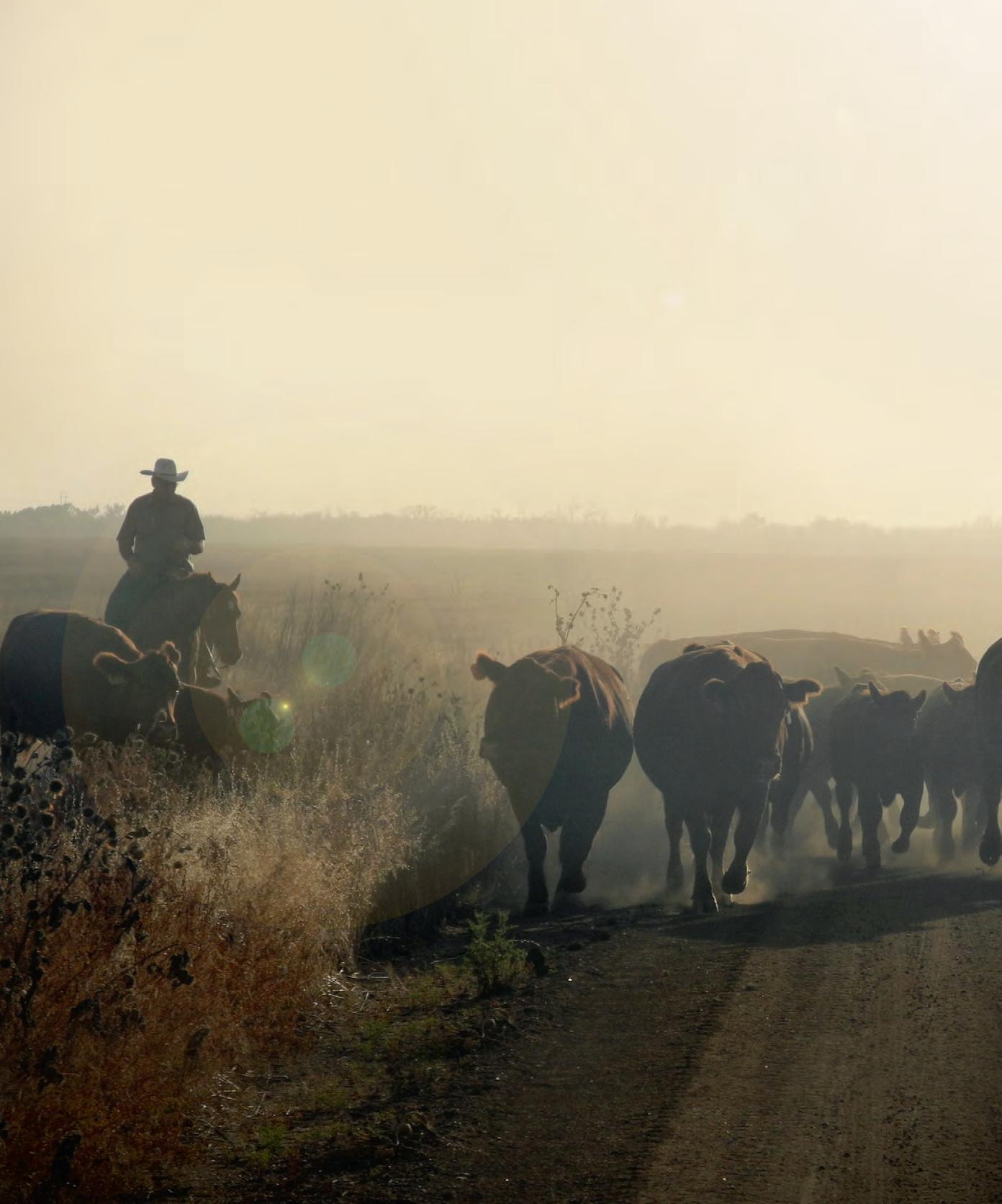






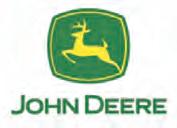
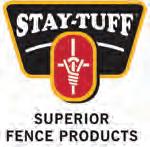



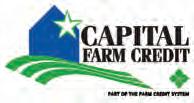




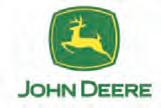

Texas A&M Natural Resources Institute, a unit of Texas A&M AgriLife Research, recently published results of the 2022 Texas Landowner Survey, providing natural resource and conservation agencies, as well as policy makers with critical insight into the demographics, needs, challenges and preferences of landowners who operate private working lands across the state.
The voluntary survey, which received more than 5,000 responses, is conducted every five years as a collaborative effort between the Natural Resources Institute, the Texas Parks and Wildlife Department and other natural resource professionals.
The data collected by the survey aids natural resource agencies in developing and implementing educational resources and programming to benefit landowners and the landscapes they steward.
“I am hopeful this report will be helpful to both landowners and those who assist landowners,” said Angelica Lopez, Ph.D., research scientist with the Natural Resources Institute. “Understanding who we serve is vital to developing meaningful programs.”
According to the report, 83% of Texas is comprised of private, rural working lands that produce many benefits including food, fiber, recreation, ecosystem services and energy for the state and beyond. These working lands encompass the rangelands, farms and forestlands that not only support the economy, but also provide critical resources such as erosion and flood control, wildlife habitat, and improved water and air quality.
“Since private, rural working lands comprise most of the open space in Texas, private, rural landowners and their management decisions help shape our statewide resources,” said Roel Lopez, Ph.D., director of the Natural Resources Institute.
While operations vary in size, the results of the 2022 survey indicate 60% of respondents own less than 500 acres; 15% own between 500 and 1,000 acres; and 25% own more than 1,000 acres.
Survey results also indicate fewer respondents are deriving income from their lands — particularly those owning less than 500 acres. Collectively, 90% of respondents earned less than 30% of their income from their land.
Respondents answered wildlife, family and hunting were the primary drivers behind land ownership, closely
followed by ranching and recreation. The most common recreational activities noted included hunting, wildlife watching and experiencing nature.
The survey also indicated landowners manage their lands for a variety of game species ranging from big game to upland and migratory game birds. For respondents who hunt, the preferred target wildlife species was overwhelmingly white-tailed deer.
The loss of Texas working lands to urban sprawl and associated development, as well as water issues, invasive species and ownership rights are among the primary concerns noted by responding landowners.

Gov. Greg Abbott appointed Mike Khan and Cat Parks and reappointed Jennifer “Jen” Henderson, P.E., Judy Krohn, Ph.D., Traci LaChance, Jarrod Smith and Wayne Wilson to the Brazos River Authority Board of Directors for terms set to expire Feb. 1, 2029.
The board formulates plans deemed essential to the operation of the district and its administration in the control, storing, preservation, and distribution of the storm and flood waters of the Brazos River and its tributary streams. In addition, the authority may discover, develop, and produce groundwater in the Brazos River Basin for the use of its customers.
Texas & Southwestern Cattle Raisers Association members seated on the Brazos River Authority Board of Directors include Cat Parks and Wayne Wilson.
Parks is the co-owner and operator of the Trinity Ranches, located in Texas and New Mexico. She serves as a senior consultant for the Leadership Institute and was recently named president of the Coalition Por For Texas.
Wilson, of Bryan, is the owner of Wilson Cattle Co., a cow-calf and diversified stocker operation. Additionally, he is the former board chair of Aggieland Pregnancy Outreach, Brazos County AgriLife Extension Beef and Forage Committee, Brazos County Farm Bureau Board, and Brazos Valley Groundwater Conservation District and former director of Capital Farm Credit, ACA.
At time of press, these appointments were subject to confirmation by the Texas Senate.
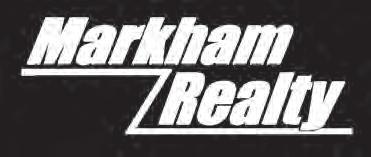

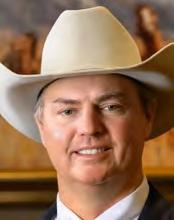
After a successful 2023 Fort Worth Stock Show & Rodeo, the board of directors, executive committee and officers of the Southwestern Exposition and Livestock Show met to receive reports on this year’s show and conduct official business.



Matt Carter was appointed general manager by the organization’s executive committee. Carter assumes the title and role previously held by longtime stock show officer, Brad Barnes.
In assuming the executive management position for the 127-yearold organization, Carter now directs its day-to-day operations. He joined the stock show’s full-time staff as senior executive vice president in 2021, but he previously served as a volunteer beginning as a livestock show superintendent in 2009 and was later elected to the organization’s board of directors and executive committee.
Barnes, who will continue serving in important governance and operational roles, was re-elected the organization’s president by the stock show’s board of directors who also elected other officers including: Edward P. Bass, chairman; Elaine Agather, secretary; Randy Rogers, treasurer; and Charlie Geren, vice president. Scott Kleberg and Phillip Williamson were also elected to new vice president positions to broaden participation in leadership roles with Fort Worth’s oldest and largest public event.
Barnes also reported on a recordbreaking 2023 Stock Show in his annual report to the organization’s membership. Estimated grounds attendance was 1,271,250 eclipsing the record set in 2020. Attendees included 1,097 visitors coming from 98 nations across the globe.




A pilot project underway in Bailey County in the Texas Panhandle could result in future carbon credit revenue streams for agricultural landowners in Texas and beyond.
Texas Agricultural Land Trust has partnered with AgriCapture to hold a conservation easement on 300 acres of pristine grassland habitat. The easement contains provisions that make the property eligible to receive carbon credits for storing and conserving soil carbon, as well as reducing emissions associated with crop production.
The pilot project in Bailey County will generate carbon credits as an avoided grasslands conversion project and follow the Grassland Protocol from Climate Action Reserve. The conservation easement held by Texas Agricultural Land Trust will forever protect the land from being converted to cropland and disturbing the underlying soil carbon.
The project creates an opportunity for Texas Agricultural Land Trust and AgriCapture to learn more about how carbon credits can be factored into conservation easements going forward. By providing an additional revenue stream for landowners, the financial burdens associated with putting a piece of property under a conservation easement are lessened.

According to data released by USDA and compiled by the U.S. Meat Export Federation, March beef exports, while below last year’s high volume, were the largest since October 2022.
Beef exports totaled 120,495 metric tons in March, down 5% from a year ago. Export value fell 17% to $892.6 million, but both volume and value were the highest in five months. Through the first quarter, beef exports were down 8% year-over-year to 326,494 metric tons, valued at $2.35 billion, down 22%.
March beef exports to Mexico were well-above last year, while export growth to the Caribbean was highlighted by a record month for the Dominican Republic.
Exports also increased year-over-year to the Philippines, while beef variety meat demand strengthened in South Africa and Peru. March exports to South Korea were below last year, but were the largest in 10 months, while exports to China/Hong Kong were the largest since October.
“U.S. beef exports faced considerable headwinds late last year and at the beginning of 2023, but the March results show some encouraging trends,” said U.S. Meat Export Federation President and CEO Dan Halstrom. “Most Asian markets showed renewed momentum in March, while exports continued to trend higher to Mexico, the Caribbean and South Africa.” T C







Upcoming Ranching 101 session will be held July 18.
Whether you own land or are seeking to rent, leasing property for grazing or hunting can be beneficial for both parties.

Texas & Southwestern Cattle Raisers Association invites members to attend a Ranching 101 session with featured speaker Kyle Weldon at 1 p.m. Tuesday, July 18.
The hour-long Zoom webinar will cover what to expect when leasing land and how to create a lease agreement. To register, scan the QR code on this page.


An associate with James D. Bradbury PLLC in Fort Worth, Weldon’s practice focuses primarily on agriculture, environmental, energy, and land-use law.
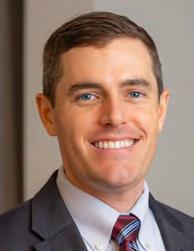
He says he finds satisfaction in helping clients navigate legal issues and opportunities impacting their businesses and operations. Weldon
regularly assists landowners with real estate transactions and energy related agreements, including negotiating oil and gas leases, surface use agreements, pipeline and access easements, and agreements related to renewable energy development, such as wind and solar projects.
Weldon also represents both land trust organizations and landowners in the negotiation of conservation easements, permanently protecting the conservation values of rural property. He has significant experience in state court litigation and has handled a diverse range of business and commercial disputes. Prior to law school, he worked as a livestock nutritionist for a national feed company. T C

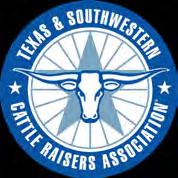
Member or not, join TSCRA at one of our many local events to connect and learn about the latest in the cattle industry over a great beef meal with fellow ranchers, landowners, and those who live for this land. Learn more at TSCRA.org.

May 12 – Abilene
June 13 – George West
June 15 – Dallas
July 18 – Tyler
August 3 – Crockett
August 21 – Beaumont
August 29 – Decatur
September 6 – Stephenville
September 13 – Waco
September 28 – Amarillo
October 3 – Houston
October 10 – Throckmorton
October 16 – San Angelo
October 25 – Mt. Pleasant
October 27 – Victoria
November 9 – Fredericksburg
November 16 – Brenham
November 28 – San Antonio
December 6 – Edinburg
Interested in sponsoring local ranch gathering events? Contact events@tscra.org.
TSCRA Special Rangers urge other victims to come forward.
Truth Allen Stephens, of Guymon, Oklahoma, was arrested May 4 on felony charges for writing a fraudulent check. The arrest is the result of an investigation led by Texas & Southwestern Cattle Raisers Association Special Ranger Bart Perrier and the Okmulgee County Sheriff’s Office.
In March, Stephens allegedly wrote a check from a closed account for $187,650 to buy cattle from an Okmulgee County rancher. Stephens took possession of the fraudulently purchased cattle, totaling 139 cows and 46 newborn calves. He allegedly transported them to western Oklahoma to sell them.
Soon after, the rancher discovered the check was not valid and attempted to contact Stephens. Stephens avoided the victim, refusing to provide a valid form of payment for the cattle.
According to Perrier, Stephens purchased additional large sets of cattle, along with horses, tack and a Peterbilt semi-truck using the same sequence of checks from the closed checking account.
Texas & Southwestern Cattle Raisers Association Special Rangers are continuing to investigate and request any other potential victims in the Oklahoma area who believe they may have been victimized by Stephens contact Perrier at 918-440-8360.

Perrier advises individuals who agree to sell cattle or personal property through private sales to refrain from accepting personal checks without prior verification. Opting for a cashier’s check or securing funds through wire drafts between financial institutions is a more secure practice.
Texas & Southwestern Cattle Raisers Association special rangers would like to recognize and thank Okmulgee County Sheriff Eddy Rice and Texas County Sheriff Matt Boley along with their offices for the joint effort in this investigation. T C




Equipment stolen in Garfield County, Oklahoma.
Texas & Southwestern Cattle Raisers Association
Special Ranger Bart Perrier reports a John Deere 7230 tractor with a front-end loader, a 15-foot John Deere 1518 mower, and a homemade quick-attach hay spike stolen near Breckenridge, Oklahoma. The serial number of the tractor is IL07230XPBH700853, and the serial number of the mower is W01518F014278. The equipment was last seen April 3. Anyone with information on this case is urged to contact Perrier at 918-440-8360.
Saddle stolen near Cleburne.
Texas & Southwestern Cattle Raisers Association
Special Ranger Robert Pemberton reports a 16inch roping saddle missing from a barn off County Road 310A. The saddle has 2001 written on the skirts, Muleshoe Rotary Club on the seat jockeys and Labor Day Average Winner on the fenders. It is also fully tooled and valued at $800.
Heifer missing near Crowley.
Pemberton also reports a black-and-white motley faced heifer weighing approximately 600 pounds missing near Crowley. Last seen April 20, the heifer has a white face and a yellow ear tag with No. 91 in the left ear. Anyone with information on these cases is urged to contact Pemberton at 903-450-3900.
Bull missing near Sulphur Springs.
Texas & Southwestern Cattle Raisers Association
Special Ranger Bo Fox reports a 3-year-old black Angus bull missing off County Road 4763. The bull has a yellow ear tag with No. 0111 in the left ear. The bull was last seen April 3 in a neighboring pasture. Anyone with information on this case is urged to contact Fox at 903-348-9638.
DISTRICT 18 — WEST TEXAS
Steers missing in Hudspeth County.
Texas & Southwestern Cattle Raisers Association
Special Ranger Clay McKinney reports 10 crossbred
steers missing near Dell City. Last seen in February, the steers are branded with a rocking thunderhead on the left hip; have an under bit ear notch in the right ear; and have an orange ear tag in the left ear.
They are approximately 10 months old and weigh about 500 to 600 pounds. Anyone with information on this case is urged to contact McKinney at 432-448-9367.
DISTRICT 21 — CENTRAL TEXAS
Tractor stolen near Reagan.
Texas & Southwestern Cattle Raisers Association
Special Ranger Steven Jeter reports a 2014 New Holland T495 tractor stolen from a property off FM 1373 in Falls County. The tractor has a cab and yellow hay spears on the front and rear. It was stolen April 25. Anyone with information on this case is urged to contact Jeter at 936-335-2758.
DISTRICT 26 — CENTRAL TEXAS
Heifers missing in Mason County.
Texas & Southwestern Cattle Raisers Association
Special Ranger Todd Jennings reports four black, bredAngus heifers missing. Last seen March 28, the heifers are approximately 900 pounds with pink ear tags in their left ears. They are also branded with a connected backward L and forward F on their left hip.
Six cow-calf pairs missing near Willow City.
Jennings also reports six cow-calf pairs missing in northern Gillespie County. The missing cattle are as follows:
• 2 Charolais cows, ear tag No. 4660 and 5726
• 1 black motley-face cow, ear tag No. 868
• 1 black cow, ear tag No. 561
• 1 grey cow, ear tag No. 565
• 1 red cow, ear tag No. 938
The ear tags are white and in the cows’ left ear. The pairs were last seen April 17. Anyone with information about these cases is urged to contact Jennings at 830-997-7585.
DISTRICT 27 — SOUTH CENTRAL TEXAS
Steers missing near Floresville.
Texas & Southwestern Cattle Raisers Association
Special Ranger Matt Sigur reports three steers missing from a pasture off FM 2505. Last seen March 17, the steers are approximately 600 pounds with red or blue ear tags in their left ears. They are also branded on the left hip with a backward L and lowercase b. Anyone with information on this case is urged to contact Sigur at 361-726-2354. T C
TSCRA offers a cash reward for information leading to the arrest and/or grand jury indictment of individuals for theft of livestock or related property. Anonymity is guaranteed. To provide information, call the Operation Cow Thief tip line at 817-916-1775.
The Linz Heritage Angus program consistently and uniformly delivers high-performance cattle with the most sought-after traits that not only benefit your herd, but puts you in a unique opportunity. When you work with Linz, you get the support of an entire program - from our Blue Branch Ranch breeding operations to our Timpas Feedlot and an entire processing facility with a white tablecloth customer base. Our goal is to maximize your economic success and provide our restaurant customers with high-quality Angus beef that can be traced back to the ranch and the bull that produced it.


Horses, often the backbone of daily ranch operations, require careful attention to maintain their optimal condition. At the 2023 Cattle Raisers Convention & Expo in Fort Worth, Texas A&M AgriLife Extension horse specialists Dr. Chelsie Huseman and Dr. Jennifer Zoller shared valuable considerations for feeding horses to ensure their vitality.
According to Zoller and Huseman, the goal of any feeding program is to get each animal to a desired condition for maximum health and performance.

Understanding a horse’s body condition is crucial to determining the appropriate feeding practices. A reliable assessment of a horse’s overall health and weight is body condition score, which rates animals on a scale of 1 to 9 based on fat cover, with 5 being the optimum condition.
“It’s really important that we evaluate body condition score and try to keep our horses at this body condition score five,” Zoller recommended.
The best way to evaluate an animal’s body condition score, she explains, is by observing with sight and touch.
On a horse, the six key areas to watch and monitor for fat cover are as follows:
• Top of neck
• Either side of withers
• Down the back
• Either side of the tailhead
• Behind the elbow
• Over the ribs
When a horse begins to lose or gain weight, the ribs tend to be the first visible area of changing fat cover. Visible ribs indicate insufficient energy intake, necessitating an increase or change in feed.
On the other hand, overweight horses can experience metabolic problems similar to humans, like diabetes, and from an economic standpoint, it becomes an unnecessary drain on resources.
“If I’m paying for feed and I’m maintaining [horses] at a high body condition score, I’m pouring money down the drain and actually doing detriments to my animals,” Zoller said.
To achieve desired body condition in every animal, the Texas A&M equine experts outlined how hierarchy dynamics, grouped feeding and feed composition all play a part in feeding strategy.

First, understanding instinctual herd dynamics and hierarchy within the herd is essential for managing feeding behavior.



“Horses operate in a herd that creates a hierarchy,” Huseman explained. “In the wild, there is a boss horse, or a dominant horse, and then there are others who individually fall in line. Every horse has a place.”
Huseman added the dominant horse will protect the herd, test new water sources and find the best grazing spots, but humans control those factors in a domestic environment. When feeding grouped horses, this inherent hierarchy can significantly affect how horses share and access feed.
Dominant horses tend to monopolize feed resources, potentially depriving subordinate horses of adequate nutrition. To ensure all horses receive adequate feed, Huseman suggested providing sufficient space for each horse during feeding.
This can be achieved by allowing 4 to 6 feet of bunk space per horse, or providing extra feed pans for individual feeding. If the dominant horse refuses to share, alternative feeding arrangements or schedules should be considered.
The next challenge of feeding in a group comes down to maintenance requirements, usually determined by age and activity. Grouping animals together based on energy needs is the most efficient way to tailor feeding programs.
To further demonstrate, Zoller provided an example of feeding a herd consisting of maintenance animals (light work on occasion); working horses; a weanling; and a retirement-aged animal.
In this instance, she recommended grouping the maintenance and working horses together, especially through winter when they have the same maintenance requirement. Placing the weanling and aged horse together and creating a creep feed situation allows the growing weanling to access the type of feed it needs, while the older horse can receive the supplements it needs.
Feed type and quality come next.
Zoller recommended every nutrition program start with long-stem roughage, whether that be grass hay, alfalfa or pasture.
Horses should consume a minimum of 1% of their body weight in pounds of roughage each day, and those on pastures naturally consume 2-3% of their body weight daily.
Additionally, a balanced diet should include fats and starches, or sugar, for bursts of energy. While a base level of starch is beneficial, too much can disrupt the pH level in the hindgut and can lead to colic or founder.
Horses often receive starch through grain, but new, spring grass is especially rich in sugar and starch. To avoid excess carbohydrate consumption when first turning animals out to pasture, Huseman recommended a phased approach, starting with 15-minute grazing periods and gradually increasing the duration by 15 minutes every day up to five hours before allowing horses to graze freely.
For horses on grain diets, Huseman encouraged a twoweek gradual introduction to feed changes to allow the horse’s stomach and system to adjust properly. Her rule of thumb is to not exceed a grain meal size greater than 0.5-0.75% of the animal’s body weight. Or, a 1,000-pound horse would receive about 5 pounds of grain in one meal.
Pointing back to the importance of recognizing hierarchy, Huseman said too much grain fed in one setting can prove detrimental to gut health.
For example, feeding 8 pounds of grain each to two animals pastured together may mean the dominant animal eats all 16 pounds at once — making something like gastric rupture plausible.
“It’s our job as managers to make sure that you’re feeding starches at the recommended amount and to not overload their system,” Zoller said.
She also shared that grazing horses and cattle together can benefit both species, if done appropriately.
Both grazers have different internal parasites, and when pastured together, can help break the parasite lifecycle for each. Additionally, their distinct grazing patterns contribute to more uniform grazing on pasture — horses spot graze, whereas cattle graze more uniformly.
However, Zoller reminded managers to “make sure that anything that you put out for those animals is safe for both species,” as certain additives used in cattle feed, such as ionophores, can be toxic to horses.
Through body condition scoring, tailored feeding approaches and careful management of feed transitions, horse owners can ensure animals receive the optimal nutrition while promoting overall health and well-being.

At Cactus Feeders The Cattle Come First, and Our Cattle Feeding Customers are the Core of Our Business



Get to know the individuals who make Cactus Feeders a success.
Cactus Feedyard
Matthew Turney, Manager
Cactus, TX office: (806) 966-5151 cell: (806) 282-7077

Centerfire Feedyard
Rusty Jackson, Manager
Ulysses, KS office: (620) 356-2010 cell: (806) 773-9457
Frontier Feedyard
Ross Kelso, Manager
Spearman, TX office: (806) 882-4251 cell: (806) 662-4741

Stratford Feedyard
Pistol Audrain, Manager Stratford, TX office: (806) 396-5501 cell: (806) 753-7133
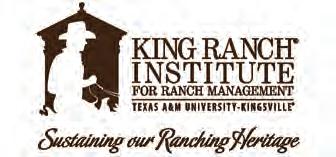

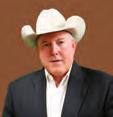
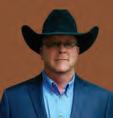


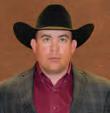



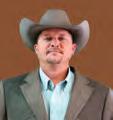
At Cactus, our Employee Stock Ownership Plan (ESOP) makes each employee an owner of the company. They think like owners and take care of the cattle like owners. That’s the secret to what has made Cactus Feeders a success, and that will continue to make us successful tomorrow.
Southwest Feedyard
Kacey Graham, Manager
Hereford, TX office: (806) 364-0693 cell: (806) 316-8799
Hale Center Feedyard
David Watts, Manager
Hale Center, TX office: (806) 879-2104 cell: (806) 202-0209
Ulysses Feedyard
Adam Gerrond, Manager
Ulysses, KS office: (620) 356-1750 cell:(806) 390-9034

Scientists have collaborated to produce the first gene-edited calf with resistance to bovine viral diarrhea virus, or BVDV, a disease that costs the U.S. cattle sector billions of dollars annually.
The recent study published in PNAS Nexus details results from a collaboration between the USDA’s Agricultural Research Service, the University of Nebraska–Lincoln, the University of Kentucky and industry partners, Acceligen and Recombinetics Inc.
BVDV is one of the most significant viruses affecting the health and well-being of cattle worldwide, and researchers have been studying it since it was first recognized in the 1940s. This virus does not affect humans, but it is highly contagious among cattle and can cause severe respiratory and intestinal diseases.
BVDV can be disastrous to pregnant cows, because it can infect developing calves, causing spontaneous abortions and low birth rates. Some infected calves survive to birth and remain infected for life, shedding massive amounts of virus to other cattle.
Despite more than 50 years of vaccine availability, controlling BVDV disease remains a problem since vaccines are not always effective in stopping transmission.
However, throughout the past 20 years, the scientific community discovered the main cellular receptor (CD46) and the area where the virus binds to that receptor, causing infection in cows. Scientists modified the virus binding site in this recent study to block infection.
After seeing promising outcomes in the lab, Acceligen edited cattle skin cells to develop embryos carrying the altered gene. The embryos were transplanted into surrogate cows to test whether the approach might also reduce virus infection in live animals.

It worked, and the first CD46 gene-edited calf, named Ginger, was born healthy July 19, 2021.
The calf was observed for several months and then later challenged with the virus to determine if she could become infected. She was housed for a week with a BVDV-infected dairy calf that was born shedding virus. Ginger’s cells displayed significantly reduced susceptibility to BVDV, which resulted in no observable adverse health effects.
The scientists will continue to closely observe Ginger’s health and ability to produce and raise her own calves.
This proof-of-concept study demonstrates the possibility of reducing the burden of BVDV-associated diseases in cattle by gene editing.
The edited calf also represents another potential opportunity to lessen the need for antibiotics in agriculture, since BVDV infection also puts calves at risk for secondary bacterial diseases. This promising trait is still in the research phase and no associated beef is entering the U.S. food supply at this time. T C
Story courtesy of USDA Agricultural Research Service


Hairy Tube-tongue is a warm-season, native perennial found in many regions of Texas and Oklahoma. It grows in open areas or shady places in many soil types from bottomlands to upland caliche sites.

This plant:
• Is a low-growing and an upright or sprawling forb with a woody base, reaching more than a foot tall in favorable conditions.
• Has several weak, hairy stems and can form small, dense colonies in pastures.

• Has opposite leaves, ovate to oval, that are one-half or three-fourths of an inch long, and a half-inch wide; with visible hairs and wavy margins.
• Has one-inch-long single flowers on the upper leaves or terminal stems, ranging from white to lavender, divided at the top with two notched lips
at the tip. The lower lip is wider than it is long, with three deeply divided notched lobes.
Hairy Tube-tongue produces flowers almost until frost, and is important to many pollinators and butterfly species, especially the vesta crescent butterfly. It is a host for the larvae stage.
The forb is also palatable for livestock and whitetailed deer, providing nutritious forage throughout the growing season and especially during the dry, hot summers when most forbs have disappeared.
Hairy Tube-tongue is also catching on in residential landscapes as an ornamental in xeriscape projects, where it adds a touch of beauty to water-wise gardens. T C






Poultry litter and livestock manure can be lowercost sources of phosphorus and potassium for pastures or hay fields low in these nutrients and not excessive in zinc, copper or other minerals.

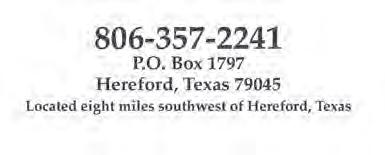


Once phosphorus and potassium have built up to target levels, additional applications of poultry litter and livestock manure will not likely be cost effective.
In some cases, over application of poultry litter and livestock manure can create mineral imbalances — an inverse calcium to phosphorus ratio in forages, for example. Additionally, excessive levels of certain minerals can reduce animal performance or contribute to animal mortality. T C

These 19 young women and men graduated from TCU Ranch Management in May after successful completion of the comprehensive curriculum of the program, which carefully covers every aspect that affects the profitability of the ranching business. Intensive classroom study of ranching practices is reinforced in 9,000 miles of travel for onsite case studies of ranches, farms, feedlots, processing plants, market facilities, and research centers. They benefit from years of operating experience with some of the very top people in the ranching profession.



If you are on social media, then you’ve probably become familiar with the name, Tucker Brown, better known as the “Seedstock Super Puncher.”
The sixth-generation rancher, National Cattlemen’s Beef Association’s 2022 beef advocate of the year, and social media star recently joined the TSCRA Talk podcast to share his perspective on the beef and agricultural industries.
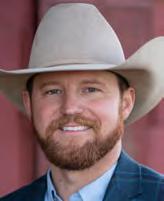
R.A. Brown Ranch, where Brown is active in his family operation, has a longstanding commitment to being progressive in the beef business. This is something Brown has embraced, recognizing a need to connect ranchers and non-agriculturalists. Social media has played a significant role in his endeavor.

Brown said there is an evident increase in people wanting to understand the cowboy way of life and where their food comes from. He focuses on authenticity across his social media accounts, which has generated a loyal following.
His audience boasts 229,200 followers on Tik Tok and 107,000 on Instagram, receiving a combined 5 to 6 million video views per month — comparable to the likes of large western brands like Lucchese or Cavender’s.
“My hope is that I can extend the ranch brand and put a face to it, and I think that helps build trust,” Brown said.
“There’s almost a sense of trust that followers have from somebody they have followed for a long period of time. Whether it’s buying products from them, buying beef or just learning about agriculture, there is something about the realism of a video that can add trust from consumer to producer. And that’s what I’m shooting for.”
Although not all ranches are identical in their appearance or head count, they all work toward a common goal: feeding families around the globe. This commonality is what Brown focuses on, working to both educate and entertain — “edutainment” as he calls it.
“The people we’re trying to reach are not searching for facts about beef,” said Brown, describing how he aims to reach people who think they know more about beef production than they actually do.
One way to educate his followers is through question-and-answer sessions. He often gets asked how much land he owns or how many cows he has, which may not fuel the “edutainment” narrative. However, they give Brown an opportunity to engage.
Like the humorous guy he is, Brown tends to answer these questions with a bit of sarcasm.
But he also fields questions pertaining to cattle health, treating infections and what to look for in a sick animal — topics often misunderstood by consumers.

“Research says that if a consumer is looking for information, the top two people that they will listen to and trust are a veterinarian and a rancher,” Brown said. “And if they trust us and we have the truth to tell, social media is a great platform to share that and reach a lot of people.”


Brown said his social media efforts are a way to fulfill a greater calling.
“We’re in God’s country every day with cattle on a thousand hills in some of the coolest parts of the United States, doing what we love — and people want to see it,” he said. “And we have the opportunity with a little device in our pocket, through just a phone, to share that story.”
To hear more of the conversation with Brown, download TSCRA Talk on your favorite podcast platform, and be sure to follow the “Seedstock Super Puncher” on both Instagram and Tik Tok with handle “tuckerbrownrab.” T C
Micah McAtee is a senior at Oklahoma State University and summer intern for Texas & Southwestern Cattle Raisers Association. Tucker Brown's Instagram page provides reallife ranching content to more than 107,000 followers.Clark Welder, a seasoned rancher and oil and gas attorney, carries on a rich family legacy rooted in the land. With a profound love for his heritage, Welder embraces the challenges and opportunities that lie ahead for the ranching industry.
Hailing from Beeville, Welder says the cattle business became part of his DNA from an early age. Today, he manages his family’s property, which has been in active operation for 150 years.
Welder’s membership and involvement with Texas & Southwestern Cattle Raisers Association has been an integral part of his life, too. His late father, Raymond Welder, was an active director for many years, and served as an honorary director later in life. Raymond’s father was active in the organization, too.
Among the family’s cherished relics is a medallion from the 25th silver anniversary of the Texas & Southwestern Cattle Raisers Association convention in 1901.

“It was worn by my great-grandfather, Tom Welder, who was a trailer driver back in the 1870’s,” Welder explains.
Elected to the Texas & Southwestern Cattle Raisers Association board of directors in 2009, he says the connections made by joining and getting involved in the organization are indispensable.

“TSCRA, for me, is a really wonderful organization that allows you to meet so many of your peers,” Welder says. “And when you have a question or a challenge on your property, you can pick up the phone and call someone who’s faced the same challenge and ask them, ‘Well, how do I overcome this?’”
Welder’s involvement in the association has been multi-faceted. He has served on various committees, including the legislative affairs and tax committee, as well as the previous association promotion committee. He continues to encourage young people to join and to be involved — recognizing the next generation holds the key to the industry’s future.
For Welder, Texas & Southwestern Cattle Raisers Association provides a unified voice and pillar of support for the ranching community.
“It’s absolutely critical for landowners to be a member of TSCRA,” he says. “The problems and challenges we face are typically too large for one person to handle. It takes some scale, and that’s what TSCRA offers. They’re an organization that will have your back.”
Welder also emphasizes the invaluable role of Texas & Southwestern Cattle Raisers Association brand inspectors and special rangers in promoting landowner rights. He recognizes many Texas landowners are absentee. The presence of the association’s special rangers becomes an immeasurable benefit, ensuring the protection and welfare of all property owners, regardless of membership status.
Or as he puts it: “Just having the boots on the ground and the knowledge to know what to look for is so huge.”
Welder is a graduate of Texas A&M University and St. Mary’s University School of Law. He and his wife, Alice, have three daughters, Lilly, Alice and Lindsay. T C



ARTHUR G. UHL 111 President
4040 Broadway St., Ste. 430 San Antonio, Texas 78209
John M. “Jack” Shelton III Amarillo, 1984-1986
James L. Powell San Angelo, 1988-1990
Tom Beard Alpine, 1994-1995
C. Coney Burgess Amarillo, 1997-1999
J. Mark McLaughlin San Angelo, 1999-2001
John E. Dudley Comanche, 2001-2003
Bob McCan Victoria, 2003-2005
C.R. “Dick” Sherron Beaumont, 2005-2007
Jon Means Van Horn, 2007-2009
Dave Scott Richmond, 2009-2011
Joe J. Parker Byers, 2011-2013
CARL RAY POLK JR. First Vice President P.O. Box 155108 Lufkin, Texas 75915
Pete Bonds Saginaw, 2013-2016
Richard Thorpe lll Winters, 2016-2018
Robert E. McKnight Jr. Fort Davis, 2018-2020
G. Hughes Abell Austin, 2020-2022
Jack Hunt San Juan Capistrano, California
Richard Wortham Austin
HEADQUARTERS
P.O. Box 101988 Fort Worth, Texas 76185 817-332-7064 • 800-242-7820
Jason Skaggs Executive Vice President/ Chief Executive Officer
Jaclyn Roberts Parrish Executive Director, Communications & Marketing
STEPHEN DIEBEL Second Vice President and Secretary/Treasurer 3907 Salem Rd. Victoria, Texas 77904



Emily Lochner
Executive Director, Engagement & Education
Grace Dunham
Executive Director, Events & Partnerships
Megan Wills
Executive Director, Finance & Human Resources
Michele Woodham Executive Director, Insurance Services
Scott Williamson
Executive Director, Law Enforcement, Brand & Inspection Services
Lisa Walker
Executive Director, Membership & Operations
GOVERNMENT RELATIONS
919 Congress Ave., Suite 750 Austin, Texas 78701
Melissa Hamilton Executive Director, Government Relations
New Tauramox™ (moxidectin) Injectable Solution, the first generic Cydectin® (moxidectin) Injectable, runs gastrointestinal roundworms, lungworms, cattle grubs, mites and lice out of town. Expect the same weight gain advantage as with Cydectin® Injectable, but at a lower cost — it’s called swagger. Get the moxi with moxie from your animal health provider. For more information, visit Norbrook.com.

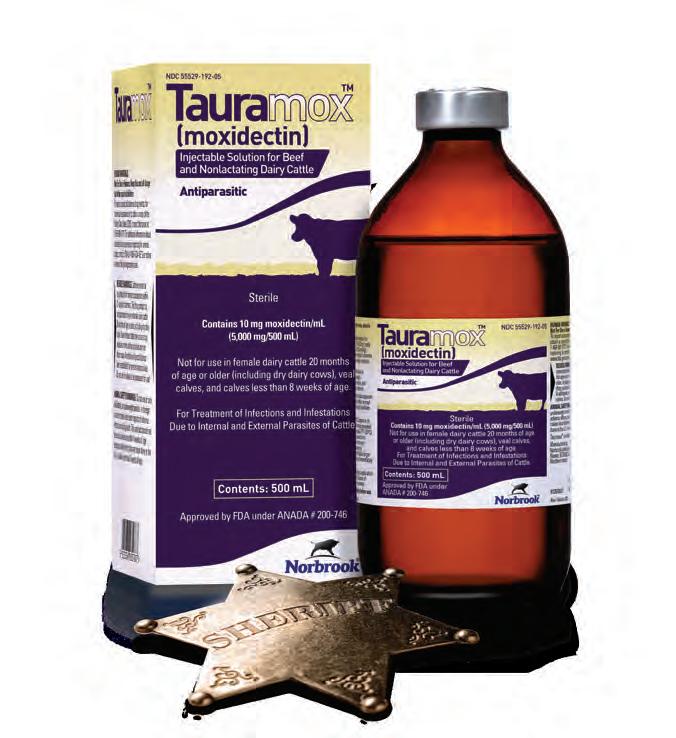
Cattle must not be slaughtered for human consumption within 21 days of treatment. This drug is not approved for use in female dairy cattle 20 months of age or older, including dry dairy cows. Use in these cattle may cause drug residues in milk and/or in calves born to these cows. A withdrawal period has not been established for preruminating calves. Do not use in calves to be processed for veal.

Joe M. “Jody” Bellah, Throckmorton
Blake Birdwell, Canyon
E. S. F. “Swasey” Brainard II, Pampa
J. K. “Rooter” Brite Jr., Bowie
Donnell Brown, Throckmorton
Campbell Burgess, Amarillo
Deborah Clark, Henrietta
Lynn Cowden, Skellytown
J. B. Daniel, Crowell
James Henderson, Memphis
Clayton Henry, Wichita Falls
Brooks Hodges, Guthrie
Joe Leathers, Guthrie
Frank McLelland, Tahoka
Jeff Mitchell, Amarillo
Gage Moorhouse, Benjamin
Diaz W. Murray, Wichita Falls
J. Malcolm Shelton IV, Amarillo
Dale A. Smith, Amarillo
Jim Thompson, Breckenridge
Tom Watson, Muleshoe
Wesley Welch, Lubbock
William L. “Buck” Arrington, Pampa
Van Baize, Nocona
Emry Birdwell Jr., Henrietta
Mary Lou Bradley-Henderson, Childress
R. A. “Rob” Brown Jr., Throckmorton
J. D. Cage, Muleshoe
Mike Gibson, Paducah
Ronald J. “Ron” Gill, Chico
Robert B. Mansfield, Amarillo
Tom Moorhouse, Benjamin
Boots O’Neal, Guthrie
James Palmer, Roaring Springs
Wilson Scaling, Henrietta
Chris Scharbauer, Amarillo
John Welch, Wolfforth
A. B. “Buck” Wharton III, Vernon
Tom Woodward, Decatur
Kevin Busher, Winters
Charles M. “Charley” Christensen Jr., San Angelo
C.A. “Chili” Cole IV, San Angelo
Alan F. Curry, San Angelo
James H. Dudley IV, Horseshoe Bay
Amanda Dyer, Fort Davis
Johnny Ferguson, Big Lake
D.A. “Day” Harral, Fort Stockton
Ron Helm, Van Horn
Heath Hemphill, Coleman
Shelby W. Horn, Fredericksburg
Larry R. Horwood, Sterling City
Grant Jones, Rochelle
Mark W. Jones, Brady
W. Clay Jones, Brady
Ty Keeling, Boerne
Lorenzo Lasater, San Angelo
Brian T. McLaughlin, Midland
David L. Neal, San Angelo
Gerald Nobles Jr., Brady
James Oliver, Ozona
Wade Perks, San Angelo
Jessica Tate, Marfa
James Uhl, Fort McKavett
Cody Webb, Barnhart
Ken Welch, Baird
Ray W. Willoughby III, Eldorado
C. A. “Chip” Cole III, San Angelo
William C. “Billito” Donnell Jr., Alpine
Richard Gates, Marfa
W. H. “Billy” Green III, Albany
Rafe Hargrove, Rotan
Dr. Joe Pat Hemphill, Coleman
Richard D. “Dick” Hughes, El Paso
Ken Jordan, San Saba
Don Keeling, Fredericksburg
Chris Lacy, Fort Davis
Laurence M. Lasater, San Angelo
Ben Love, Marathon
Len P. Mertz, San Angelo
Tom Perini, Buffalo Gap
Bill Phinizy, Gail
Frank Price, Sterling City
Gordon E. Sauer, Fredericksburg
Danny B. Stewart, Sterling City
Rick Tate, Marfa
Cliff Teinert, Albany
Dennis W. Webb, Barnhart
W. C. “Billy” Williams, Mertzon
Ford Drummond, Pawhuska, Oklahoma
Les Nunn, Pauls Valley, Oklahoma
Edward Bordovsky Jr., Riviera
Austin Brown III, Beeville
W. Christopher Bush, Refugio
James Clement lll, Kingsville
David S. Crow, Corpus Christi
Dustin Dean, Floresville
David DeLaney, Kingsville
Robert “Bobby” Dobson, Birmingham, Alabama
James L. “Jamie” Donnell Jr., Fowlerton
J. David Eppright, Cost
Benjamin Eshleman III, Corpus Christi
Joseph B.C. Fitzsimons, Carrizo Springs
Cody Fry, Lueders
Jim L. Gates, Pearsall
Milton S. Greeson Jr., Victoria
Bret Griffith, Del Rio
Heath Grigg, Kingsville
Marty R. Harris, Tilden
Leslie Kinsel, Cotulla
Claude Koontz, San Antonio
Steven J. Mafrige, Tilden
Beth Knolle Naiser, Sandia
Federico Nieto, Raymondville
T. Michael O’Connor, Victoria
Jason Peeler, Floresville
J.R. Ramirez, La Pryor
Gilly Riojas, Corpus Christi
M. Stuart Sasser, Corpus Christi
Lew Thompson, Pearsall
Gene S. “Primo” Walker Jr., Mirando City
C. Clark Welder, Beeville
John Zacek, Victoria
Steve G. Beever, Pearsall
Richard H. Bennett, San Antonio
Chip Briscoe, Carrizo Springs
Martin W. Clement II, Kingsville
Thurman S. Clements Jr., Victoria
Nixon Dillard, Pleasanton
Trainor Evans, Mercedes
Thomas J. “Tommy” Haegelin, Concan
Dr. Philip C. Hardee, Beatrice, Alabama
Allen C. “Dick” Jones IV, Corpus Christi
David W. Killam, Laredo
Dan W. Kinsel III, Cotulla
Steve C. Lewis, San Antonio
Jim McAdams, Seguin
James A. McAllen, Linn
Tim Pennell, Westhoff
Jim Peters, Quemado
Scott Petty Jr., San Antonio
Tom Risinger, Weslaco
Frates Seeligson Jr., San Antonio
Richard Traylor, Batesville
Roger F. Welder, Victoria
David W. Winters, Del Rio
Bill Cawley, Crockett
Wayne Cockrell, College Station
Herff Cornelius Jr., Wadsworth
Carlos Detering III, Houston
Dr. Lewis (Bud) Dinges, Richmond
Gardner H. Dudley, Houston
Jay C. Evans, Dripping Springs
Lloyd French IV, Houston
Dan Gattis, Georgetown
Kelley Sullivan Georgiades, College Station
George Harrison, Bay City
Tom J. Haynie, Navasota
Robert Hodgen, Houston
Colt Hoffman, Marlin
Clay Kenley, Crockett
Gary Price, Blooming Grove
Clive Runnells III, Austin
John Sumner Runnells III, Bay City
Tony Spears, Rosanky
John “Rocky” Sullivan, Galveston
Bill White, Stowell
Claudia Scott Wright, Richmond
Leroy Ezer, Anahuac
Frank Green, Liberty
Coleman H. Locke, Hungerford
Katharine Armstrong Love, Austin
Richard M. Lucas Jr., Houston
William “Alan” McNeill, Beaumont
Evalyn Moore, Richmond
Raymond E. Moore IV, Richmond
Rick Peebles, Baytown
Gordon Richardson, Caldwell
Charles R. “Butch” Robinson, Navasota
Nolan Ryan, Round Rock
Ed Small, Austin
Guy F. Stovall Jr., El Campo
Linda Joy Stovall, El Campo
Gerald Sullivan, Galveston
John L. Sullivan, Galveston
Robert J. Underbrink, Houston
Beau Brite White, Rosanky
Dr. M. R. “Mike” Wirtz, Brenham
April Bonds, Saginaw
Missy Bonds, Saginaw
John L. Cantrell, Cresson
Ian Chapman, Madill, Oklahoma
Hunter Crow, Dallas
James T. Dangelmayr, Muenster
Seth Denbow, Weatherford
Crawford Edwards, Fort Worth
John Greer, Henrietta
Jason Harlow, Dallas
Pete Hudgins, Sherman
Tom Johnson, Wortham
John Z. Kimberlin Jr., Dallas
Ken Leiber, Fort Worth
Stefan Marchman, Fort Worth
William H. McCall, Fort Worth
Dan Nance, Haslet
Susan Roach, Fort Worth
Stephen S. “Steve” Sikes, Fort Worth
Bragg Smith III, Dallas
Curtis Younts Jr., Belton
Bradford S. “Brad” Barnes, Fort Worth
George Beggs IV, Fort Worth
John W. Carpenter III, Dallas
Barrett D. Clark, Breckenridge
Markham B. Dossett, Waco
Bob Drake, Davis, Oklahoma
James H. “Jim” Dudley, Comanche
James E. “Jim” Link, Crowley
Jon David Mayfield, Dublin
C. H. “Terry” McCall, Comanche
Bob Moorhouse, Weatherford
Russell “Rusty” Noble, Ardmore, Oklahoma
Mary Joe Reynolds-Montgomery, Fort Worth
Tom L. Roach III, Bozeman, Montana
Stephen T. “Steve” Swenson, Dallas
Bart Wulff, Dallas
Brent Mast has long been engaged in law enforcement. His career began in 1987 in Bowie, growing to eventually serve as a sergeant investigator with the Cooke County Sheriff’s Office.
In these roles, he interfaced with a team of specialists he looked up to — the Texas & Southwestern Cattle Raisers Association special rangers.
“I got to work with a lot of those guys before I got hired,” Mast says. “And I was always impressed with the quality of the guys in the workforce.”
Those early impressions would eventually lead Mast to find his way to Texas & Southwestern Cattle Raisers Association. Today, he serves as special ranger for district 22, where he investigates agricultural crimes for Brazos, Burleson, Grimes, Montgomery, Walker, Waller, and Washington counties.
“I always wanted to work for the Cattle Raisers,” Mast says. “I always thought this was the greatest secret in law enforcement — the best place to be.”
Mast finds the work rewarding, particularly because of his background in agriculture. He grew up around livestock and had a stint as a ranch manager for a cowcalf operation when he was younger.
His cattle background brings value when catching modern-day criminals. As he says, these criminals are much different than what is depicted by Hollywood.
“We think of traditional, old-school cattle theft as cutting a fence and stealing cattle, but there are all kinds,” Mast says. “You also have caretaker theft, where the guys supposed to be caring of the stockers are stealing calves.”
Then, there is fraud, which is no stranger to Mast.
“I had a case where an individual conned a man into taking a personal check for an account set up using a bogus ID,” he says. “They drove off into the sunset with $20,000 worth of registered cows never to be seen again.”
Mast has also helped investigate high-profile cases throughout the years, including the cattle-rustling case involving cattle owned by Hall of Fame pitcher Nolan Ryan.
“The case was pretty big, it spanned across eight different counties,” Mast explains. “The last few thefts that the criminal orchestrated were in sale barns right before we caught him.”
Mast’s institutional knowledge and impressive resumé certainly make him a value to the Texas & Southwestern Cattle Raisers Association team, but his passion for his work cannot be understated.
“It’s what we do,” he says. “It’s a team effort to catch these criminals, and I work with some great people.” T C








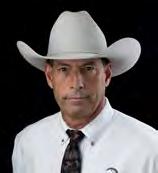
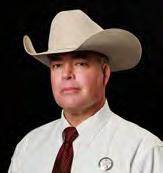


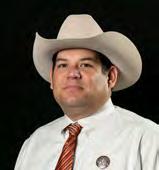
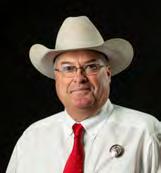
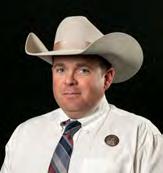


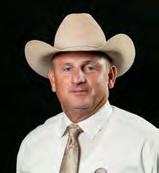
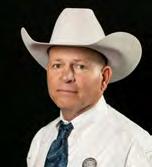

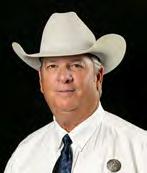
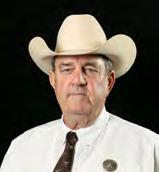


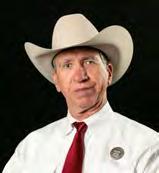
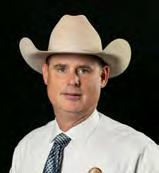

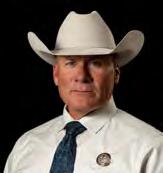
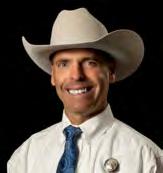

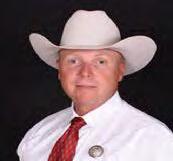
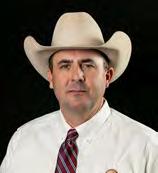
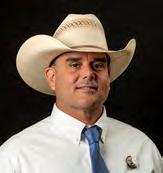
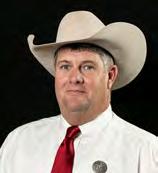
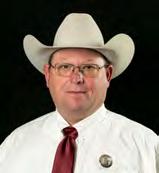

354 Ranch
Terrell
3G Exotics
Troy
4B Land & Cattle
Palestine
4L Farms
Blanket
99 JD Farm
Abilene
Robert Adsit
Gainesville
Gwendolyn Bailey
Lake Creek
BAP Ranch
Grapevine
Bar M Brangus
Florence
Rachel Barr
Keller
Bownds Ranch
Mason
Brock Ranch
Fort Worth
Circle C Cattle
Devine
Circle N Ranch
Lubbock
Kevin Coffman
Lubbock
Conway Farms
Athens
Cross Rifle Ranch
Lott
D Spur Cattle Co.
Claremore, Oklahoma
Dato-on Ranch
Richardson
Diamond G Ranch
Marfa
Die Quelle
Castroville
Double Bar G Farms/Rafter44 Cattle
Gustine
Double M Ranch
Jasper
Perry C. Finger
San Antonio
Flatline Cattle Co.
Bullard
Todd Fleming
Helotes
Freedomcross Cattle
Amarillo
GALLO Ranch
San Antonio
Greiner Transport
Crosby
Grigsby Farms
Salado
Haby Ranch
San Antonio
Hamilton Meadows
Granbury
Hartman Ranch
Llano
JA Cattle
Skiatook, Oklahoma
J Bar E Ranch
Dallas
J59 Land & Cattle
Stilwell, Oklahoma
Jordan Young Ranch
Carlsbad, California
JW Land & Cattle
Aledo
KA Ranches
Alpine
L&W Ranch
Blackwell
Lawless Creek Ranch
Austin
Bryan Lee
Mount Enterprise
Lindemann Cattle Co.
Nacogdoches
LK3 Cattle Co.
Sealy
Loco Ocho Longhorns
Copperas Cove
Lucky A Cattle Co.
Thorndale
Connie & Kevin Ludlum
Tuscola
Catherine Mahlmann
Brenham
Billie Marek
McAllen
McCormick Livestock
Claude
McDonald Land & Cattle
Muleshoe
Midland 1st Choice
Midland
Gary Milliorn
Abilene
MMB Ranch
Hondo
Moran Interests Inc.
Houston
Nickel 4N Ranch
Castroville
Parker Family Farms
New Braunfels
Peterson Ranches
Fort Worth
Posada Ranches LP & Tree Haus Ranches LP
Boerne
Private Wealth Asset Management
Evergreen, Colorado
Purgatory Ranch
San Marcos
Rachel Holloway Records
Colleyville
Rafter G Ranch
Huntsville
Rancho Artiaga
Eagle Pass
Bryan Rigsby - TNR
Springfield, Tennessee
RLW Operations LLC
San Antonio
Rockin TG Ranch
Normangee
Rocking HM Ranch
Godley
Romeo Cattle Co.


Cleveland
Dan Schneemann
Big Lake
Sears Ranch

Gainesville
Sierra Ranch LLC
Abilene
Southern Shiloh Ranch LLC
Abilene
Spring Creekland & Cattle Inc.
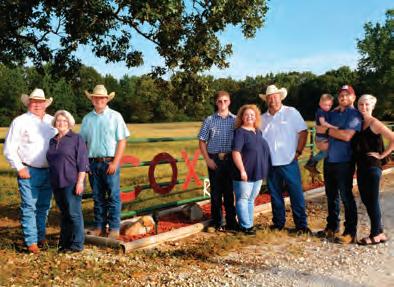
Wheeler
St. Pierre Cattle Co.
Kennedale
Hardy Starr
Era
Steven Smoked
Goodyear, Arizona
Stillwaters Ranch
Llano
Sunrise Cattle
Lucas
Swinging B Ranch
Axtell
Teague Ranch
Winston-Salem, North Carolina
Tierra Familiar LLC
Jonesboro
Turkey Creek Ranch
Thrall
Keith Virden
Austin
Andrew Walls
Skidmore
Erin & Eric Wheeler
Pipe Creek
Chloe & Rangler Wilson
Sabinal
Elkhart Horse Auction
Where: Elkhart
Phone: 903-764-1495
Sale Day: Saturday
Contact: Tiffany Patterson, 903-388-7288
Atascosa Livestock Exchange
Where: Pleasanton
Phone: 830-281-2516
Sale Day: Tuesday
Contact: Marvin Bendele, 210-213-5890
Four County Auction
Where: Industry
Phone: 979-357-2545
Sale Day: Tuesday
Contact: Lisa Sebastian, 979-270-3041
Muleshoe Livestock Auction
Where: Muleshoe
Phone: 806-272-4201
Sale Day: Friday
Contact: Leo Aviles, 956-437-3899
BEE
Beeville Livestock Comm.
Where: Beeville
Phone: 361-358-1727
Sale Day: Friday
Contact: Robert Bridge, 361-542-6693
Meridian L/S Comm. Co.
Where: Meridian
Phone: 254-435-2988
Sale Day: Monday
Contact: Larry Brown, 254-265-1920
Clifton Livestock Comm. Co.
Where: Clifton
Phone: 254-675-7717
Sale Day: Wednesday
Contact: Larry Brown, 254-265-1920
BOWIE
J & J Livestock Auction
Where: Texarkana
Phone: 903-832-3576
Sale Day: Saturday
Contact: Cheri Beal, 903-280-4554
BRAZOS
Brazos Valley Livestock Comm.
Where: Bryan
Phone: 979-778-0904
Sale Day: Tuesday
Contact: Nina Nygard, 512-281-6753
Caldwell Livestock Comm.
Where: Caldwell
Phone: 979-567-4119
Sale Day: Wednesday
Contact: Mark Nygard, 512-281-6330
Lockhart Auction
Where: Lockhart
Phone: 512-398-3476
Sale Day: Thursday
Contact: Nina Nygard, 512-281-6753
Bruce Overstreet Livestock
Where: Pittsburg
Phone: 903-856-3440
Sale Day: Monday
Contact: Michelle Willeford, 903-767-0670
Tri County Livestock Market
Where: New Summerfield
Phone: 903-726-3291
Sale Day: Saturday
Contact: Brad Dominy, 903-394-4046
Coleman Livestock Auction
Where: Coleman
Phone: 325-625-4191
Sale Day: Wednesday
Contact: Dave Williams, 325-669-2030
Cattleman’s Columbus Livestock Auction
Where: Columbus
Phone: 979-732-2622
Sale Day: Wednesday
Contact: Lisa Sebastian, 979-270-1228
Comanche Livestock Exchange
Where: Comanche
Phone: 325-356-5231
Sale Day: Saturday
Contact: Michael Davis, 254-879-3121
The New Gainesville Livestock Auction
Where: Gainesville
Phone: 940-665-4367
Sale Day: Friday
Contact: Robin Gibbs, 903-227-0791
Coryell County Comm.
Where: Gatesville
Phone: 254-865-9121
Sale Day: Saturday
Contact: Ray Davis, 254-718-5512
Cattleman’s Livestock Comm.
Where: Dalhart
Phone: 806-249-5505
Sale Day: Thursday
Contact: Clifton Miller, 806-570-7439
DEAF SMITH
Hereford Livestock Auction
Where: Hereford
Phone: 806-240-3082
Sale Day: Tuesday
Contact: Joe Bob Via, 806-452-9280
DEWITT
Cuero Livestock Comm.
Where: Cuero
Phone: 361-275-2329
Sale Day: Friday
Contact: Kaylee Malatek, 979-942-0323
EASTLAND
Texas Cattle Exchange
Where: Eastland
Phone: 254-629-2288
Sale Day: Tuesday
Contact: Ronnie Ober, 817-371-7071
ERATH
Dublin Livestock Auction
Where: Dublin
Phone: 254-445-1734
Sale Day: Friday
Contact: Ronnie Ober, 817-371-7071
Erath County Dairy Sale
Where: Dublin
Phone: 254-968-7253
Sale Day: Friday
Contact: Bob McBryde, 940-859-6217
Stephenville Cattle Co.
Where: Stephenville
Phone: 254-968-4844
Sale Day: Wednesday
Contact: Bob McBryde, 940-859-6217
FAYETTE
Flatonia Livestock Comm.
Where: Flatonia
Phone: 361-865-3538
Sale Day: Monday
Contact: Danielle Robbins, 512-944-0383
Schulenburg Livestock Auction
Where: Schulenburg
Phone: 979-743-6566
Sale Day: Saturday
Contact: Vance Weltner, 210-473-9099
Floydada Livestock Sales
Where: Floydada
Phone: 806-983-2153
Sale Day: Wednesday
Contact: John Hindman, 806-778-4899
Pearsall Livestock Auction
Where: Pearsall
Phone: 830-334-3653
Sale Day: Wednesday
Contact: Clarence Stevens, 210-415-0441
Gillespie Livestock Co.
Where: Fredericksburg
Phone: 830-997-4394
Sale Day: Wednesday
Contact: Tom Roarick, 830-889-5155
Gonzales Livestock Market
Where: Gonzales
Phone: 830-672-2845
Sale Day: Saturday
Contact: Derek Bettis, 979-743-9699
Nixon Livestock Comm.
Where: Nixon
Phone: 830-582-1561
Sale Day: Monday
Contact: Cade Burks, 830-391-4501
Longview Livestock
Where: Longview
Phone: 903-235-6385
Sale Day: Thursday
Contact: Paul Pruitt, 903-725-6200
Mid-Tex Livestock Auction
Where: Anderson
Phone: 936-825-3970
Sale Day: Thursday
Contact: Danielle Robbins, 512-944-0383
Navasota Livestock Auction
Where: Navasota
Phone: 936-825-6545
Sale Day: Saturday
Contact: Rick Faught, 936-442-1039
Seguin Cattle Co.
Where: Seguin
Phone: 830-379-9955
Sale Day: Wednesday
Contact: Cade Burks, 830-391-4501
Hamilton Livestock Comm.
Where: Hamilton
Phone: 254-386-3185
Sale Day: Tuesday
Contact: Bob McBryde, 940-859-6217
Gore Family Auction Center
Where: Silsbee
Phone: 409-782-0612
Sale Day: Saturday
Contact: Christy McCoy, 409-782-0612
Athens Comm. Co.
Where: Athens
Phone: 903-675-3333
Sale Day: Friday
Contact: Brandy Baughman, 903-440-4382
Edinburg Livestock Auction
Where: Edinburg
Phone: 956-383-5671
Sale Day: Saturday
Contact: Coney Alvarez Jr., 956-437-3899
Hubbard Livestock Market
Where: Hubbard
Phone: 254-576-2584
Sale Day: Monday
Contact: Bob McBryde, 940-859-6217
Sulphur Springs Livestock Comm.
Where: Sulphur Springs
Phone: 903-885-2455
Sale Day: Monday
Contact: Paul Pruitt, 903-725-6200
HOUSTON
East Texas Livestock Auction
Where: Crockett
Phone: 936-544-2246
Sale Day: Tuesday
Contact: Cheyenne London, 936-222-3689
Big Spring Livestock Auction
Where: Big Spring
Phone: 432-267-5881
Sale Day: Wednesday
Contact: Bruce Brandenberger, 254-977-5763
JACKSON
Edna Livestock Auction
Where: Edna
Phone: 361-782-7666
Sale Day: Monday
Contact: Galynn Mazoch, 979-578-1823
Kirbyville Auction Barn
Where: Kirbyville
Phone: 409-423-2612
Sale Day: Saturday
Contact: Casey Jones, 409-423-0685
JIM WELLS
Gulf Coast Livestock Market
Where: Alice
Phone: 361-664-4395
Sale Day: Tuesday
Contact: Ramiro Garcia, 361-460-0008
JOHNSON
Johnson County Cattle Auction
Where: Cleburne
Phone: 817-556-9090
Sale Day: Saturday
Contact: Lee Snyder, 254-707-1682
KARNES
Karnes City Auction
Where: Karnes City
Phone: 830-780-3382
Sale Day: Saturday
Contact: Landyn Maguglin, 361-492-9484
Karnes County Livestock Exchange
Where: Kenedy
Phone: 830-583-2574
Sale Day: Thursday
Contact: Kaylee Malatek, 979-942-0323
LAMAR
Cattlemen’s Livestock Comm.
Where: Paris
Phone: 903-784-2238
Sale Day: Saturday
Contact: Robin Gibbs, 903-227-0791
Paris Livestock Auction
Where: Paris
Phone: 903-739-2575
Sale Day: Wednesday
Contact: Robin Gibbs, 903-227-0791
LAMPASAS
Lampasas Cattle Auction
Where: Lampasas
Phone: 512-556-3611
Sale Day: Wednesday
Contact: Ray Davis, 254-718-5512
LAVACA
Hallettsville Livestock Comm.
Where: Hallettsville
Phone: 361-798-4336
Sale Day: Tuesday
Contact: Kaylee Malatek, 979-942-0323
LEE
Giddings Livestock Comm.
Where: Giddings
Phone: 979-542-2274
Sale Day: Monday
Contact: Nina Nygard, 512-281-6753
Lexington Livestock Comm.
Where: Lexington
Phone: 979-773-2922
Sale Day: Saturday
Contact: Nina Nygard, 512-281-6753
LEON
Buffalo Livestock Comm.
Where: Buffalo
Phone: 903-322-4940
Sale Day: Saturday
Contact: Tyler Rader, 713-907-2725
LIBERTY
Raywood Livestock Market
Where: Raywood
Phone: 936-587-4941
Sale Day: Monday
Contact: Harvey Williamson, 963-334-5325
LIMESTONE
Groesbeck Auction & Livestock
Where: Groesbeck
Phone: 254-729-3277
Sale Day: Thursday
Contact: Tyler Rader, 713-907-2725
LIVE OAK
Live Oak Livestock Auction
Where: Three Rivers
Phone: 361-786-2553
Sale Day: Monday
Contact: Marvin Bendele, 210-213-5890
MASON
Jordan Cattle Auction
Where: Mason
Phone: 325-347-6361
Sale Day: Monday
Contact: Warren Ottmers, 830-669-2262
MCLENNAN
Waco Stockyards
Where: Waco
Phone: 254-753-3191
Sale Day: Tuesday
Contact: Larry Brown, 254-265-1920
West Auction
Where: West
Phone: 254-826-3725
Sale Day: Thursday
Contact: Ray Davis, 254-718-5512
Union Comm.
Where: Hondo
Phone: 830-741-8061,
Sale Day: Monday
Contact: Clarence Stevens, 210-415-0441
MILAM
Milam County Livestock Auction
Where: Cameron
Phone: 254-697-6697
Sale Day: Friday
Contact: Rick Faught, 936-442-1039
Nacogdoches Livestock Exchange
Where: Nacogdoches
Phone: 936-564-8661
Sale Day: Thursday
Contact: Michael Witcher, 936-556-0992
NAVARRO
Corsicana Livestock Market
Where: Corsicana
Phone: 903-872-1631
Sale Day: Tuesday
Contact: Tyler Rader, 713-907-2725
PANOLA
Panola Livestock
Where: Carthage
Phone: 903-693-6361
Sale Day: Tuesday
Contact: Lori Blankenship, 936-234-3441
POLK
Livingston Livestock Exchange
Where: Livingston
Phone: 936-327-4917
Sale Day: Saturday
Contact: Harvey Williamson, 963-334-5325
Lonestar Stockyards
Where: Amarillo Phone: 806-677-0777
Sale Day: Tuesday
Contact: Michael Vessels, 806-517-3188
RAINS
Emory Livestock Auction
Where: Emory
Phone: 903-473-2512
Sale Days: Tuesday & Saturday
Contact: Brandy Baughman, 903-440-4382
Calvert Livestock Co.
Where: Calvert
Phone: 979-364-2829
Sale Day: Friday
Contact: Ray Davis, 254-718-5512
RUSK
Hunt Livestock Exchange
Where: Henderson
Phone: 903-657-2690
Sale Day: Monday
Contact: Samuel Steadman, 318-617-1141
SAN SABA
Jordan Cattle Auction
Where: San Saba
Phone: 325-372-5159
Sale Day: Thursday
Contact: David Munden, 325-456-7253
SHELBY
Center Auction Co.
Where: Center
Phone: 936-598-4395
Sale Day: Wednesday
Contact: Michael Witcher, 936-556-0992
STARR
Triple G Livestock Auction LLC
Where: Rio Grande City
Phone: 956-437-1988
Sale Day: Friday
Contact: Coney Alvarez Jr., 956-437-3899
SWISHER
Tulia Livestock Auction
Where: Tulia
Phone: 806-995-4184
Sale Day: Thursday
Contact: Michael Vessels, 806-517-3188
TAYLOR
Abilene Auction
Where: Abilene
Phone: 325-673-7865
Sale Day: Tuesday
Contact: Dave Williams, 325-669-2030
TITUS
Stone Livestock Comm.
Where: Mt. Pleasant
Phone: 903-575-9099
Sale Day: Tuesday
Contact: Paul Pruitt, 903-725-6200
TOM GREEN
Producers Livestock Auction
Where: San Angelo
Phone: 325-653-3371
Sale Day: Thursday
Contact: Bruce Halfmann, 325-315-5972
UVALDE
Southwest Livestock Exchange
Where: Uvalde
Phone: 830-278-5621
Sale Day: Thursday
Contact: Clarence Stevens, 210-415-0441
Mort Livestock Exchange
Where: Canton
Phone: 903-287-6386
Sale Day: Special Sales Only
Contact: Paul Pruitt, 903-725-6200
WASHINGTON
Brenham Livestock Auction
Where: Brenham
Phone: 979-836-3621

Sale Day: Friday
Contact: Lisa Sebastian, 979-270-3041
WHARTON
El Campo Livestock Co.
Where: El Campo
Phone: 979-543-2703
Sale Day: Tuesday
Contact: Galynn Mazoch, 979-578-1823
Wharton Livestock Auction

Wichita Livestock Sales
Where: Wichita Falls
Phone: 940-541-2222
Sale Day: Wednesday
Contact: R.C. Langford, 832-330-7279
WILBARGER
Vernon Livestock Market LLC
Where: Vernon
Phone: 940-552-6000
Sale Day: Tuesday
Contact: James Yates, 931-316-3916
WISE
Decatur Livestock Market
Where: Decatur
Phone: 940-627-5599
Sale Day: Monday
Contact: Rebecca Benson, 940-389-6382
WOOD
Winnsboro Livestock Auction
YOUNG
Graham Livestock Comm. LLC
Where: Graham
Phone: 940-549-0078
Sale Day: Monday
Contact: Kyla Rater, 940-284-9968

DAYS ARE OVER.

At 701x, we have developed a cattle management solution specially designed for ranchers who are looking for more efficient ways to manage their records and track their cattle. Save yourself time and stress by using the Autonomous Rancher® App. Use your device in the pen or pasture to quickly enter birth dates, weights, dam/sire data, as well as other fields that are important to you.



Upgrade your herd management by pairing the app with our smart ear tags, xTpro™ and xTlite™. Start tracking the activity and location of your animals no matter where you are, even offline, at the touch of your fingertips.

19 th Annual Fall Production Sale • 9.25.23 21st Annual Pro t Proven Com’l Female Sale • 11.20.23
7 th Annual Early Bird Bull Sale • 1.22.24
www.2barangus.com
CAMERON, TEXAS
Tr acy Woods 405.880.3866

PRIVATE TREATY ANGUS BULLS AVAILABLE
Jarrod Payne 308.870.6348
FEMALES ALSO AVAILABLE PRIVATE TREATY
Power of Angus.
Contact Regional Manager Radale Tiner: 979-492-2663 rtiner@angus.org
Double Creek Farms
Angus Bulls for Sale – At all Times
Matthew Domel Cell: 254-749-3253
Mike & Barbara Domel – Meridian, TX Office: 254-435-2988 • Cell: 254-749-2240 www.mlslivestock.com

Bob Funk, owner Jarold Callahan, president Yukon, Oklahoma 800.664.3977
Angus & Hereford
WWW.EXPRESSRANCHES.COM

45 th Annual Spring Production Sale • 4.6.24
9 th Annual Meating Demand Bull Sale • 5.6.24 Ashland, KS 67831 • (620) 635-2156 Mark • Greg • GAR@GardinerAngus.com ww w. Gardiner Angus co m
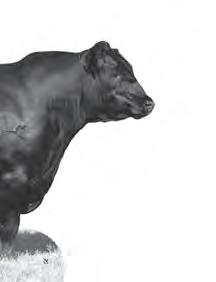
<—>
Registered Black Angus
Robert L. Hogue M.D. • Judy Hogue 6 Spring Hollow, Brownwood, Texas 76801 Ranch: 10108 CR 237 • Phone: 325-643-2225

Cell: 325-647-9168 • Fax: 326-643-6235
Email: rlhmd@familymedical.us
100+ Registered Angus Bulls
200+ Registered Angus Bulls For Sale Private Treaty
Thick, Deep, Easy Fleshing, Moderate Size, Balanced Traits For Sale Private Treaty
Watt M C asey/ Watt J r. 325-66 8-1373
Alb any, Texas 764 30 www.CaseyBeef masters.co m
Hilltop Ranch Beefmasters
Quality Beefmaster Cattle Ranches in Webb, Wilson and Kendall counties



Lyn Lesikar
Jason Lesikar 817-726-7998817-738-2177
DALE & BRENDA JENKINS, DONNA JENKINS 806-852-2485, 806-255-8873
WWW.LITTLEROBEANGUSRANCH.COM
Mailing Address: P.O. Box 2947 Laredo, Texas 78044 Phone: 361/586-5067
Performance Beefmasters from the Founding Family 62nd Bull Sale:
October 7, 2023
Lorenzo Lasater • San Angelo, TX 325.656.9126 • isabeefmasters.com
Private Treaty Females Semen & Embryos BEEFMASTERS Cullin Smith (409) 779-9872

Mike & Carla Bacica 11707 FM 2868 Flint, TX 75762
Mike: 903-520-0390 mbpga@aol.com
Registered Black Herefords bacicafarms.com

Carla: 903-530-8551 wtnca@aol.com
Beef Oriented Red Brahmans for the pasture and the show ring Liendo Plantation, 38653 Wyatt Chapel Rd. Hempstead, TX 77445 Will Detering, owner 281.989.8965

Web site: deteringredbrahmans.com
Quality Brahman Ca le Since 1936
PARTIN & PARTIN HEART BAR RANCH Janet, Steve and Carlton Partin 3159 FM 837 • Montalba, Texas 75853 903-549-3000 • Fax: 903-549-3005 Janet Partin: 903-922-3689 Carlton Partin: 407-709-0297 www.heartbarranch.com email: partin.partin@aol.com
5th Generation
Visitors are always Welcome
Our 101st Year
Sartwelle Brahman Ranch Ltd P O Box 27, Campbellton, Texas USA 78008
Sensibly Bred and Raised Brahman Cattle 979-877-4239

Sugie Sartwelle J. D. Sartwelle III 361-500-5792
Email: sartwellej@gmail.com
SATTERFIELD
at LOST PRAIRIE LAKE • Palestine, Texas
Registered Gray Brahmans
SDr. Scott & Nancy Satterfield 410 ACR 376 • Palestine, TX 75801 830-613-1492 www.satterfieldranch.com
ROLLING O FARMS
QUALITY CHAROLAIS BULLS & HEIFERS REGISTERED + GENTLE


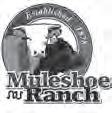
D.P. OWEN + GROESBECK, TEXAS 254-729-8644






CHAROLAIS BULLS
One or a truckload - Give us a
Registered Polled Herefords & Black Baldies FOR SALE

Contact: Nina Neel Sanders 214-454-8587 • Brady, TX
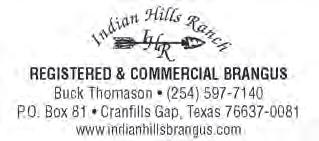

“Quality Registered Herefords” Est.1921 – Bulls for sale at all times out of good milking cows

Office: 512-446-6200 Cell: 979-218-0065
325-456-0669 or 325-651-2826 Britt Mynatt, Herd Manager 325-853-2202 or 325-340-2121
RANCH SALES AND APPRAISALS


SERVING THE RANCHING INDUSTRY SINCE 1920
5016 122nd St. Lubbock, Texas 79424 (806) 763-5331 • www.chassmiddleton.com e-mail: sam@csmandson.com



325-655-3555
San Angelo, Texas
Over 1 million acres sold since 1981 chipcoleranchbroker.com
SELLING RANCHES in SOUTH TEXAS

Dan Kinsel, Ranch Broker Cotulla, Texas 830-317-0115
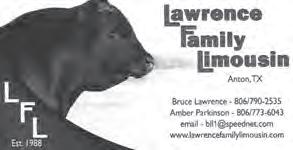



DanKinselRanches.com
c-Serving Texas, New Mexico & Oklahoma Ranchers

325-655-6989 1002 Koenigheim, San Angelo, Texas 76903
LLPRANCHLAND.COM
NEW LISTING! UNION CO., NM – 2,091.72 ac. (1,771.72 Deeded, 320 ac. -/+ State Lease), well watered w/three wells, two sets of steel pens. Well located just off of the Clayton/Springer hwy. on Barney Road. PRICE RDUCED! CEDARVALE, NM – 7,113-acre ranch (5,152 ac. +/- Deeded – 1,961 ac. +/- State Lease) well fenced & watered w/good pens, new barn.
KB RANCH - Kenney Co., TX – KB Ranch is a low fenced 802 +/- acre property that is surrounded by arge ranches. The ranch has abundant whitetail and is also populated with turkey, dove, quail, hogs and varmint species. Axis are in the area and have been occasionally seen. The ranch lies approximately 9 miles south of Bracketville on TX 131 and is accessed by all weather Standart Road.
P.O. Box 1417 Victoria, Texas 77902 361/573-7141
Traylor Division San Roque DivisionSan Carlos Division Bloomington, TX Catarina, TXRio Grande City, TX Joe Jones-Manager • 361/897-1337
Black or Red Simbrah • SimAngus HT • SimAngus
C ATTLE C OMPAN Y Joe & Beth Mercer 327 CR 459, Lott, TX 76656 • H/O/Fax: 254-984-2225 bethmercer1974@gmail.com • www.filegoniacattle.com
Office:(806) 652-3351 / Fax:(806) 652-3738
fosterbros@att.net / www.fosterbrosfarms.com

David & DarLee Foster (806) 652-3824 (806) 983-7221 mbl.
SIMMENTALS
Jody & Shawnda Foster (806) 652-2383 (806) 983-7225 mbl.

Simmental & SimAngus BULL SALE
20th Annual Bull Sale
March 8, 2012
March 7, 2024
San Saba, Texas
Private Treaty Sales
Mike Mallett
Our cattle are perfomance tested.
10602 North Hwy. 281 • Lampasas, TX 76550
Home: 512-556-8548 • Cell: 512-556-1021
Mike and Connie Mallett • 512-556-1021 Lampasas, Texas • mmcmallett@outlook.com
www.mallettsimmentals.com

Registerd Texas Longhorn bulls, cows, heifers, roping steers, trophy steers, semen, mounts skulls for sale. Overnight accommodations available on the ranch.
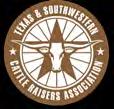


www.stonewallvalleyranch.com
512-970-4676 (HORN) or 512-751-2386 (BEVO)

100 % Wagyu B ull s + Beef for S ale
The Ultimate in ... Calving Ease, Price Premium, and Carcass Quality
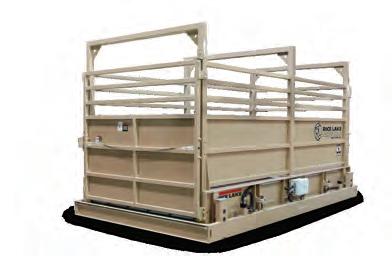
Kevin & Jessica Moore 2929 Oak Hill Rd., Alvarado, TX 76009 Kevin: 817-822-7109 • Jessica: 817-822-7402 Kevin@m6ranch.com • www.m6ranch.com
Grade Prime © Every Time!
614-778-2422 ǘN NuWAGYU.COM
Krum, Texas
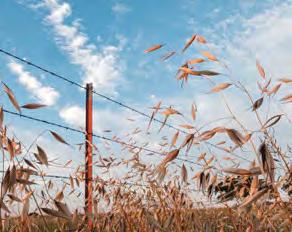
Wagyu Cattle
- Seed Stock & Bulls - Semen
- Pregnancies - Embryos
Profitable • LBW • Docile • Delicious
Phone: 806-655-3033 • 325-554-7434
Cell: 806-683-4613
steve@expressscale. com www.expressscale.com

MONDAY, JULY 10
Special Stocker & Feeder Sale
Where: Jordan Cattle Auction, Mason
When: 10 a.m.
THURSDAY, JULY 13
Special Stocker & Feeder Sale
Where: Jordan Cattle Auction, San Saba
When: 10 a.m.
Wichita Falls Luncheon
Where: McBride’s Steakhouse, Wichita Falls
When: 11:30 a.m.
TUESDAY, JULY 18
Ranching 101: Lease Land Logic
Where: Online
When: 1 p.m.
TSCRA Ranch Gathering
Where: Cross Brand Cowboy Church, Tyler
When: 5:30 p.m.
SATURDAY, JULY 22
Replacement Female Sale
Where: Jordan Cattle Auction, San Saba
When: 10 a.m.
MONDAY, JULY 24 -
WEDNESDAY, JULY 26
NCBA Summer Business Meeting
Where: San Diego, California
THURSDAY, AUG. 3
Special Stocker & Feeder Sale
Where: Jordan Cattle Auction, San Saba
When: 10 a.m.
TSCRA Ranch Gathering
Where: Crockett Civic Center, Crockett
When: 5:30 p.m.
MONDAY, AUG. 7
Special Stocker & Feeder Sale
Where: Jordan Cattle Auction, Mason
When: 10 a.m.
MONDAY, AUG. 7WEDNESDAY, AUG. 9
Texas A&M Beef Cattle Short Course
Where: College Station
TUESDAY, AUG. 15
Ranching 101: How to Calculate Cow Cost
Where: Online When: 1 p.m.
FRIDAY, AUG. 18SATURDAY, AUG. 19
Express Ranches Annual Big Event Angus Sale Where: Yukon, Oklahoma
SUNDAY, AUG. 20
Linz Heritage Angus: 7th Annual Female Sale
Where: Blue Branch Ranch, Byars, Oklahoma When: 5:30 p.m.
MONDAY, AUG. 21
TSCRA Ranch Gathering
Where: Courville’s, Beaumont When: 5:30 p.m.
SATURDAY, AUG. 26
Replacement Female Sale
Where: Jordan Cattle Auction, San Saba
When: 10 a.m.
TUESDAY, AUG. 29
TSCRA Ranch Gathering
Where: NRS, Decatur When: 5:30 p.m.
TUESDAY, SEPT. 5
Gardiner Angus Ranch: 19th Annual Fall Production Sale
Where: Ashland, Kansas
WEDNESDAY, SEPT. 6
TSCRA Ranch Gathering
Where: 1907 Grill, Stephenville When: 5:30 p.m.
SATURDAY, SEPT. 9
TSCRA Football Tailgate
Where: Texas Tech University, Lubbock When: 3 p.m.
SATURDAY, SEPT. 9SUNDAY, SEPT. 10
The Dale Lasater Ranch: Annual Bull Sale
Where: Matheson, Colorado
WEDNESDAY, SEPT. 13
TSCRA Ranch Gathering
Where: Jackson Family Brangus, Waco
When: 5:30 p.m.
THURSDAY, SEPT. 14
Wichita Falls Luncheon
Where: McBride’s Steakhouse, Wichita Falls When: 11:30 a.m.
TUESDAY, SEPT. 19
Ranching 101: Bull Buyers Guide
Where: Online When: 1 p.m.
MONDAY, SEPT. 25WEDNESDAY, SEPT. 27
TSCRA Policy Conference
Where: College Station
SATURDAY, SEPT. 23
Replacement Female Sale
Where: Jordan Cattle Auction, San Saba When: 10 a.m.
THURSDAY, SEPT. 28
TSCRA Ranch Gathering
Where: West Texas A&M University, Canyon When: 5:30 p.m.
SATURDAY, SEPT. 30
TSCRA Football Tailgate
Where: West Texas A&M University, Canyon When: TBD

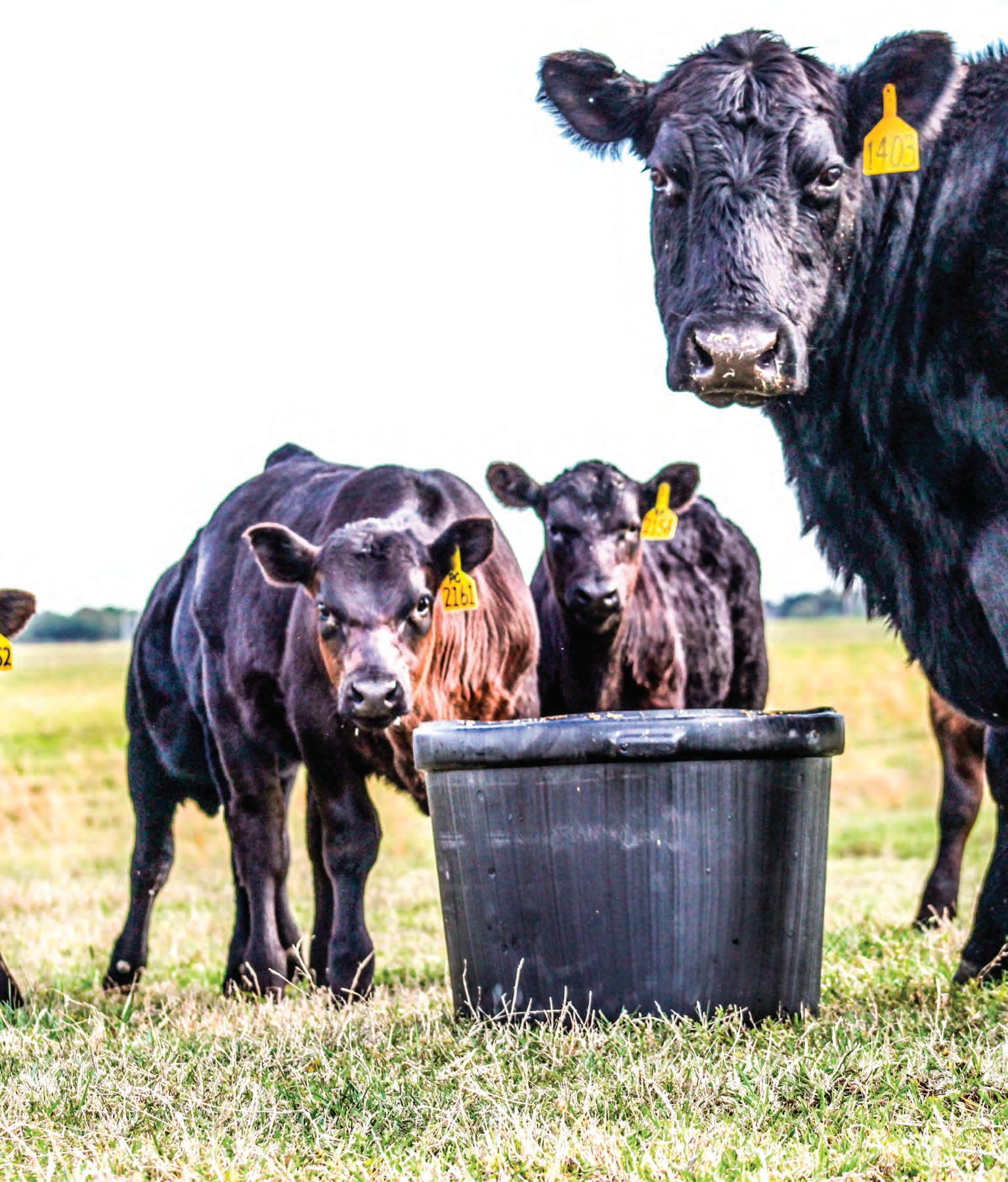


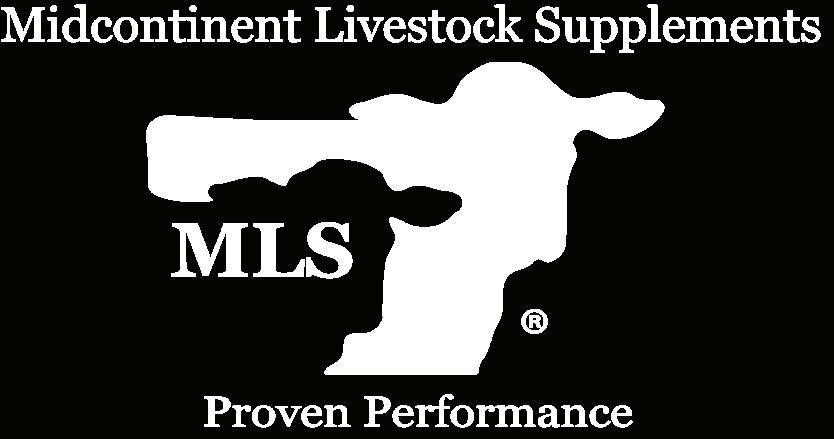
Lois Rose Williams, daughter of H.W. Williams, of Lorena, is pictured on The Cattleman cover from years gone by. Within the magazine’s pages was a story on a major animal health scare in Europe.
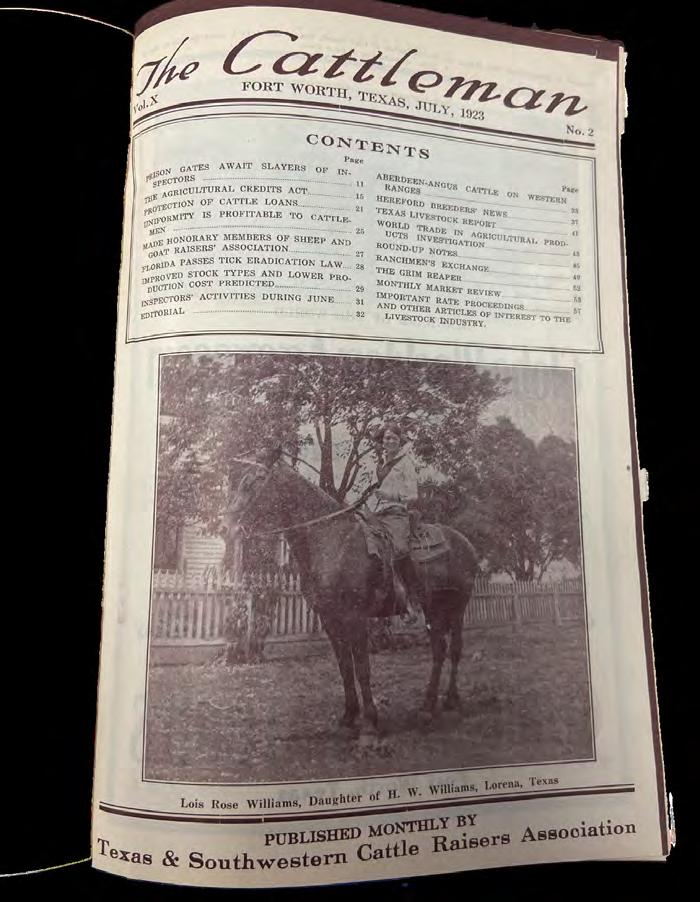
On April 23, 1923, a foot-and-mouth disease outbreak occurred in England, causing USDA to issue an embargo on U.S. imports of livestock from the country.
“The welfare of the entire livestock industry in the U.S. demands that the utmost care be exercised in keeping out such a dangerous enemy as foot-and-mouth disease,” the article from National Provisioner read. T C
